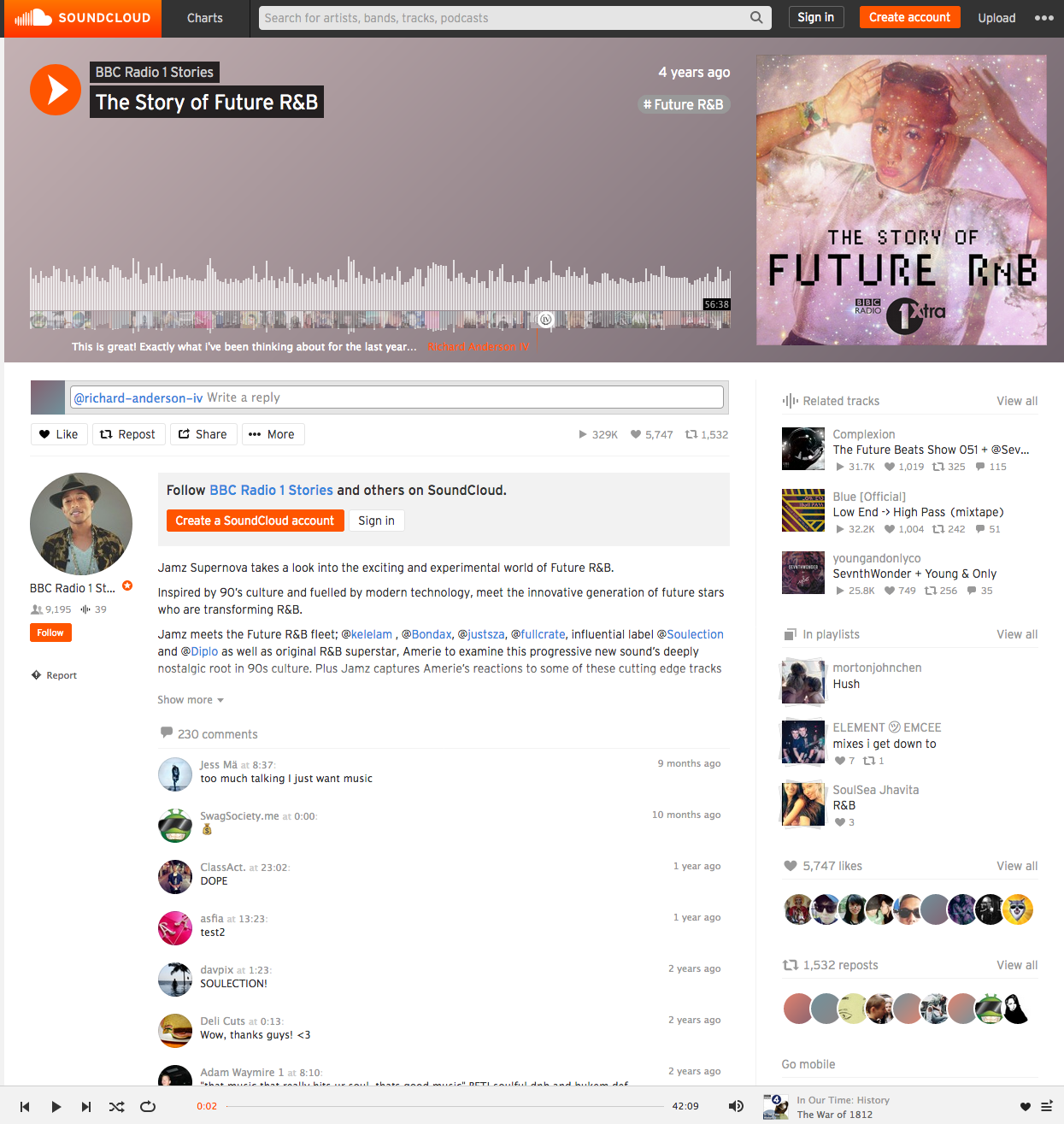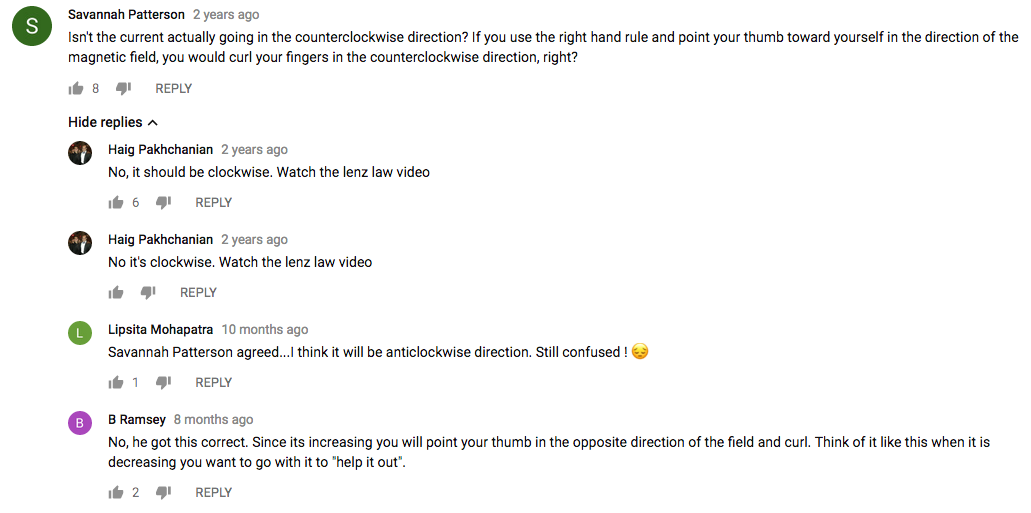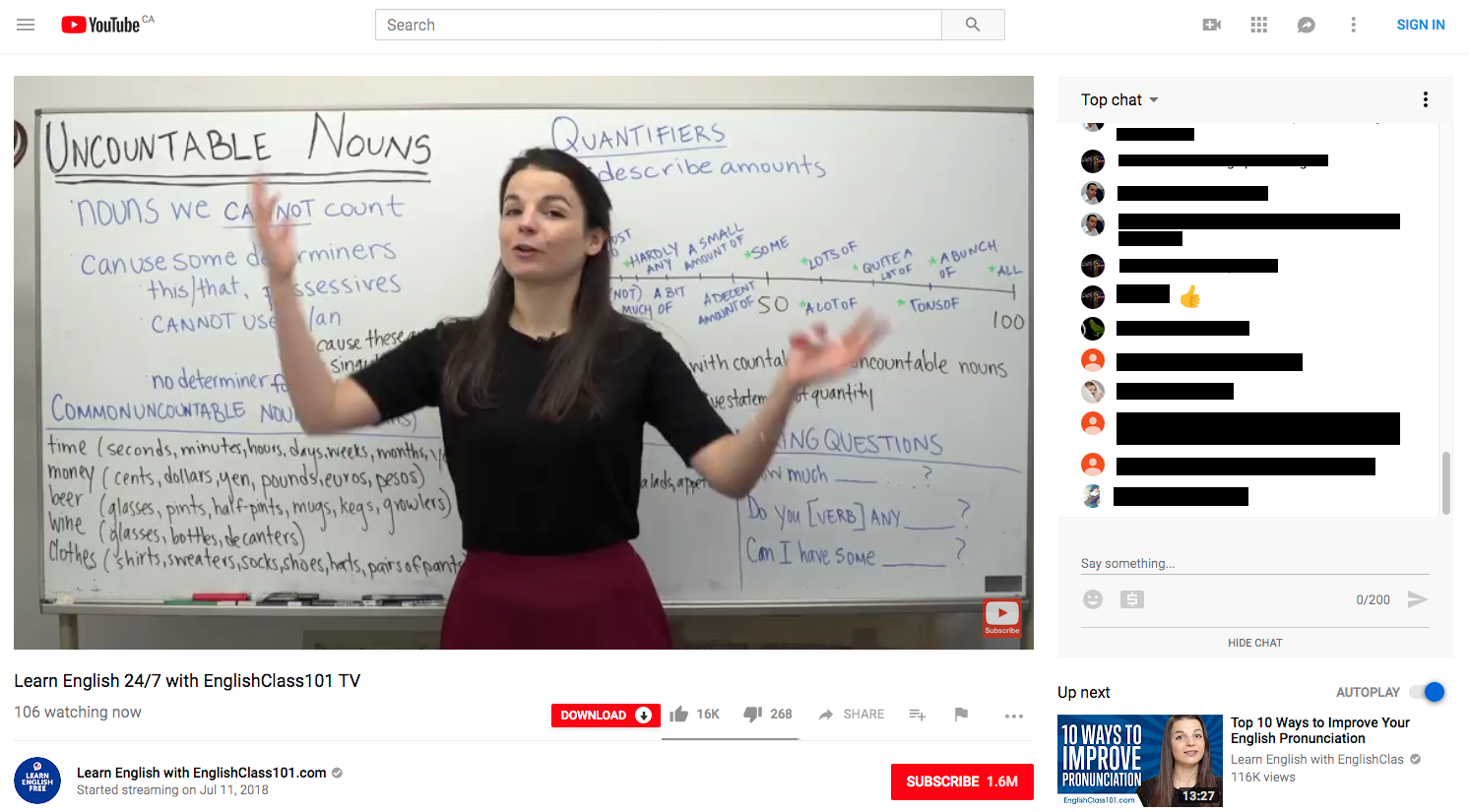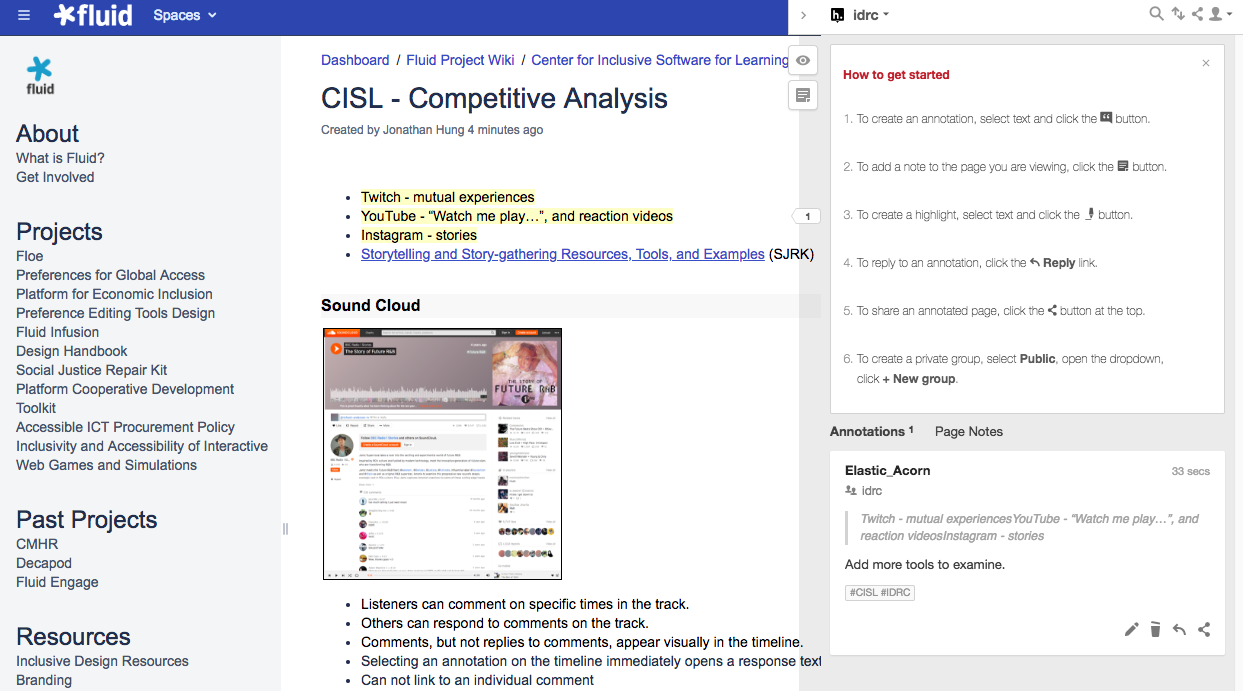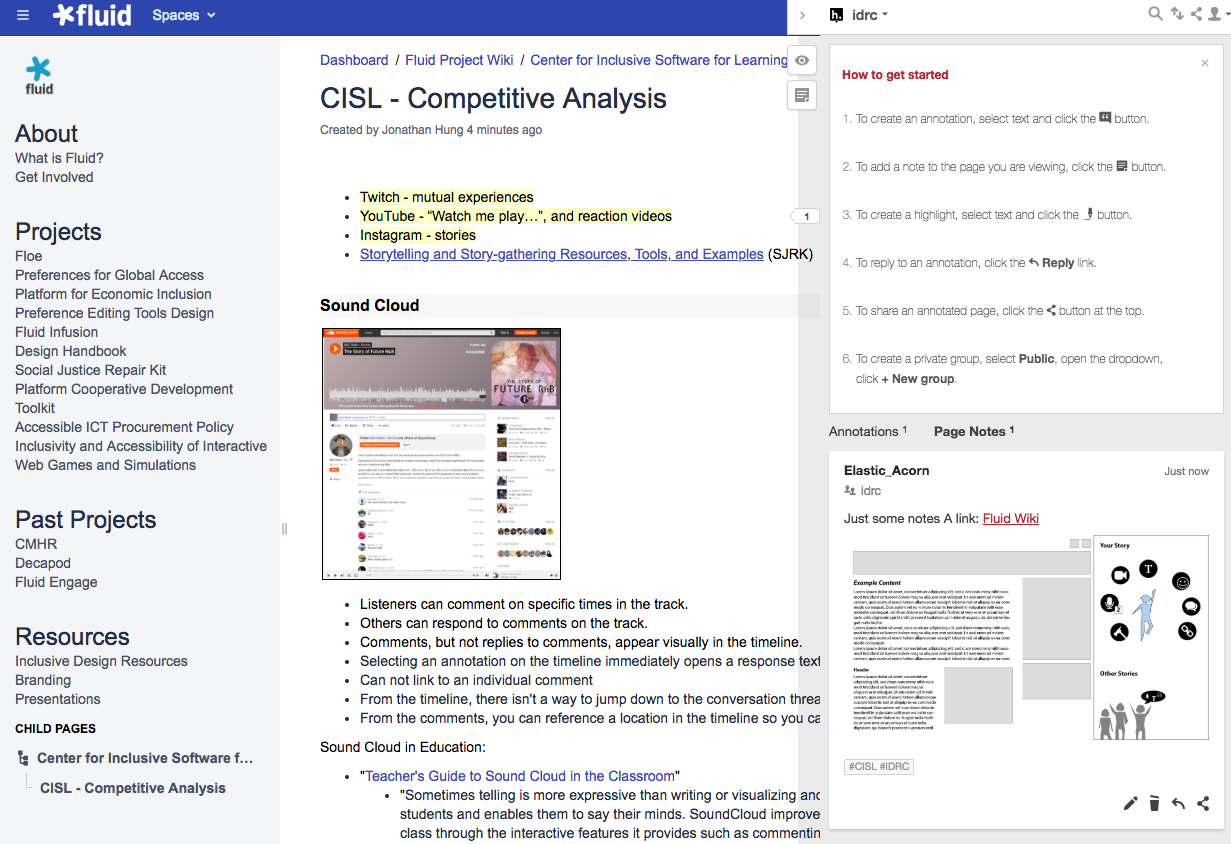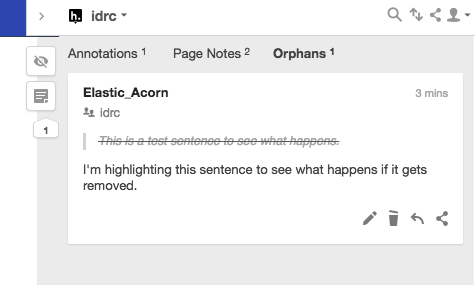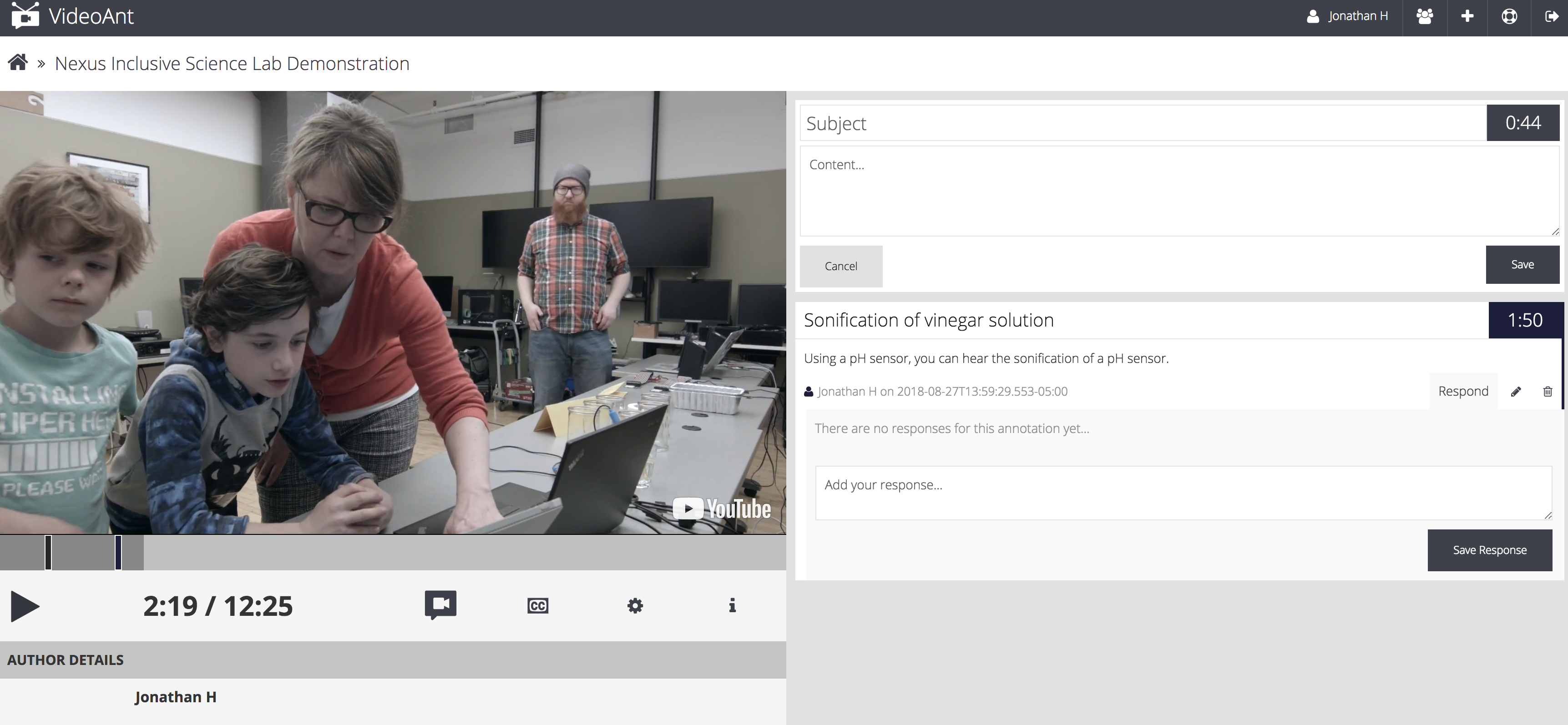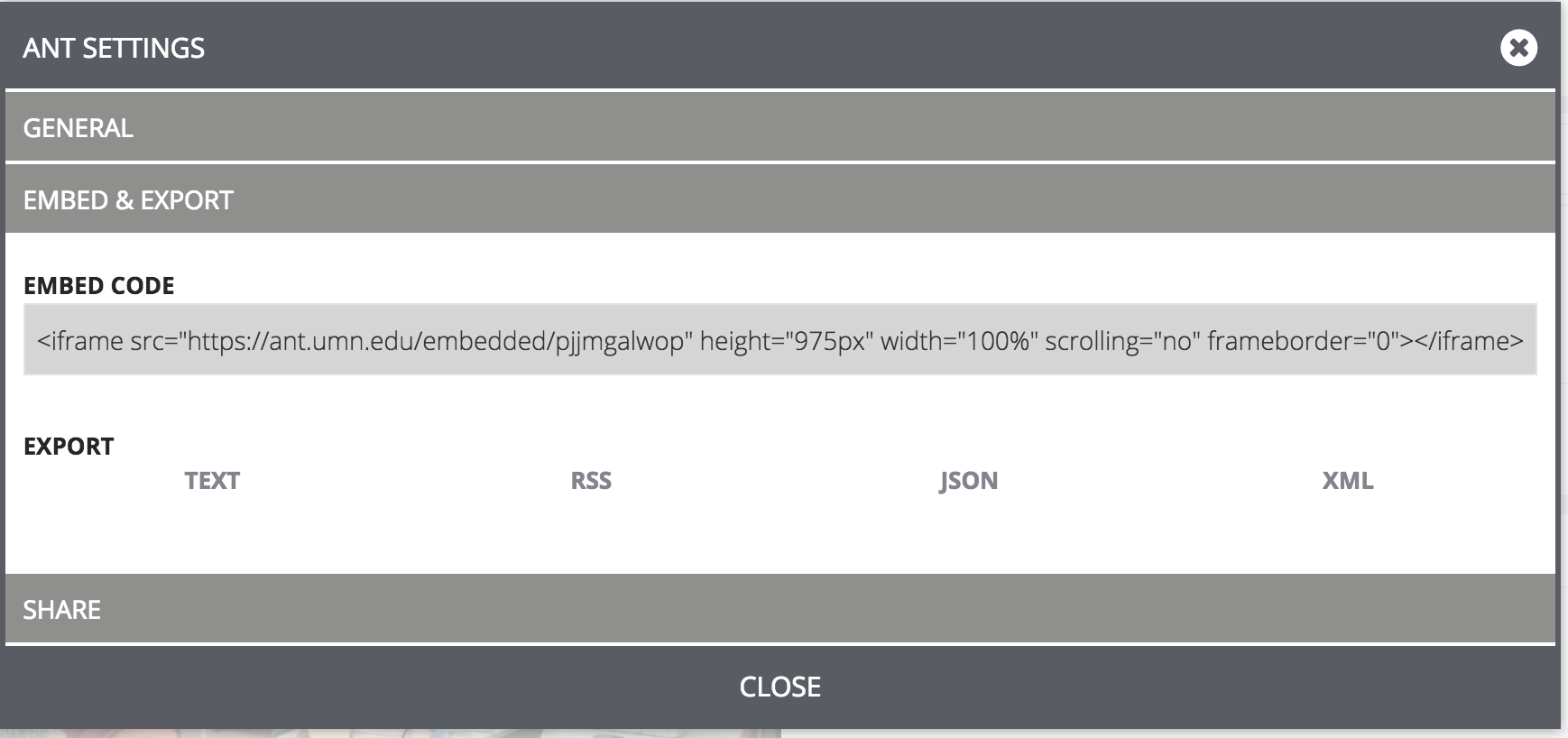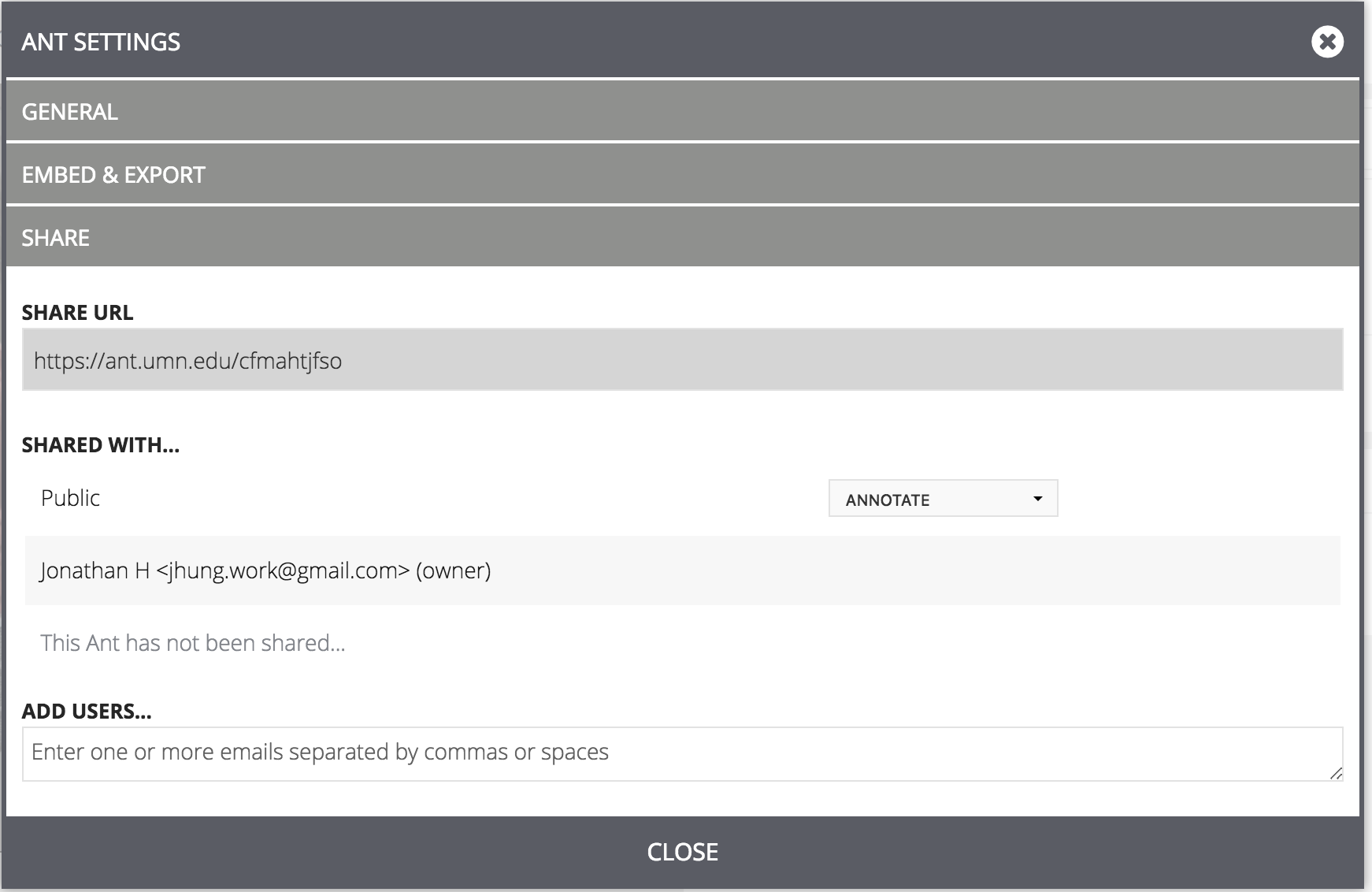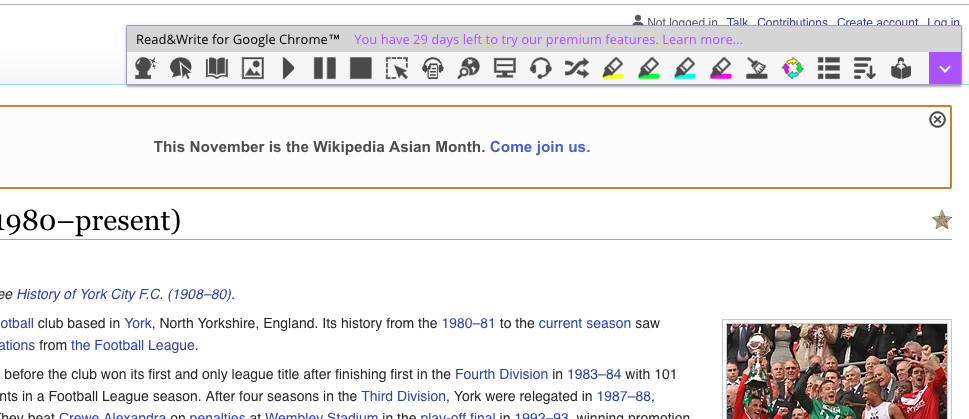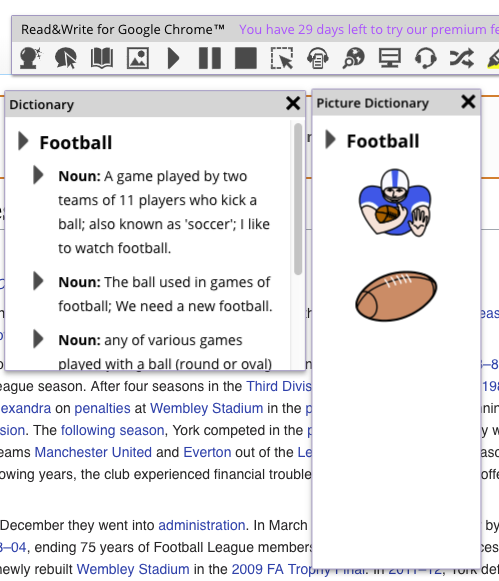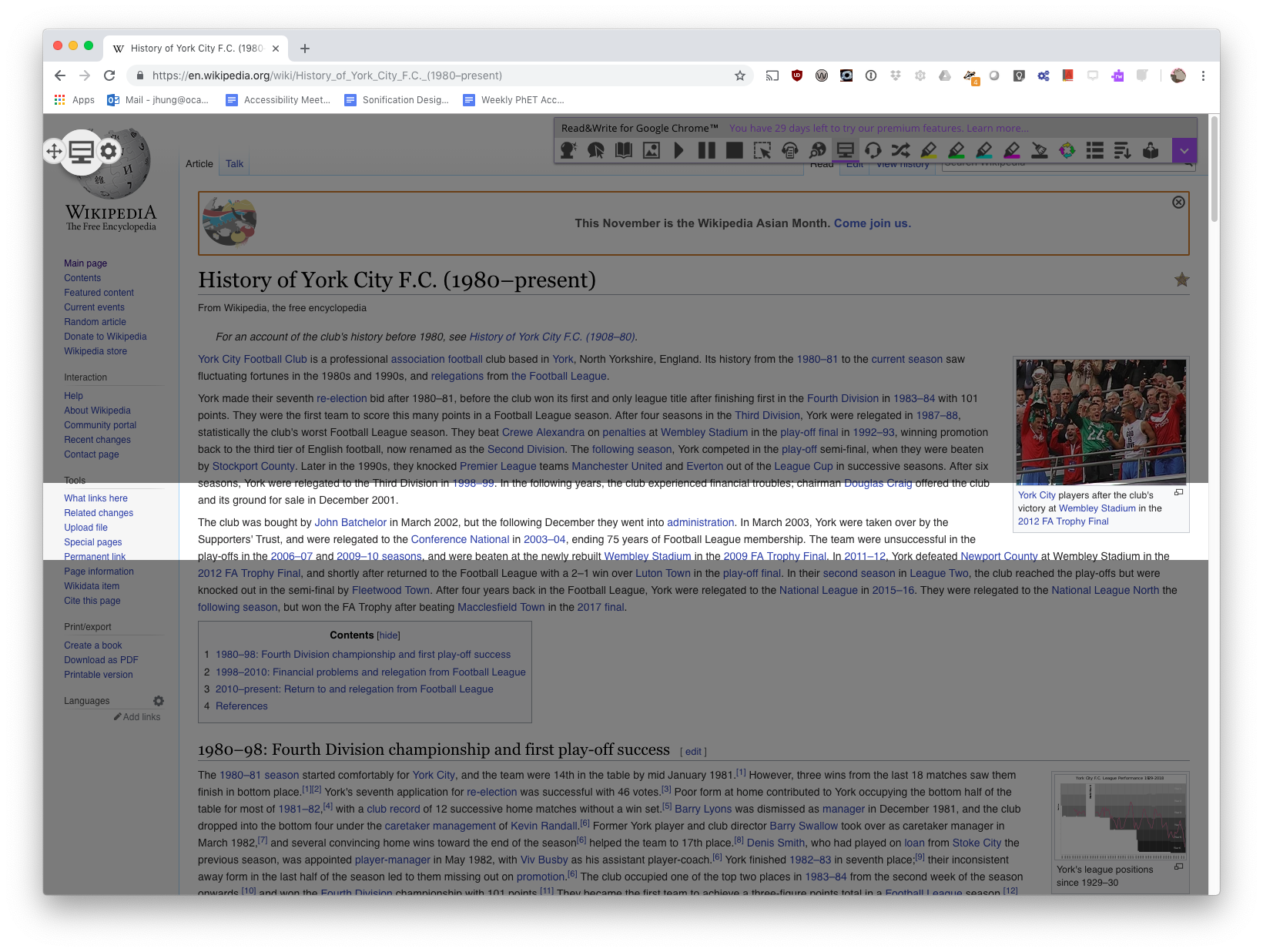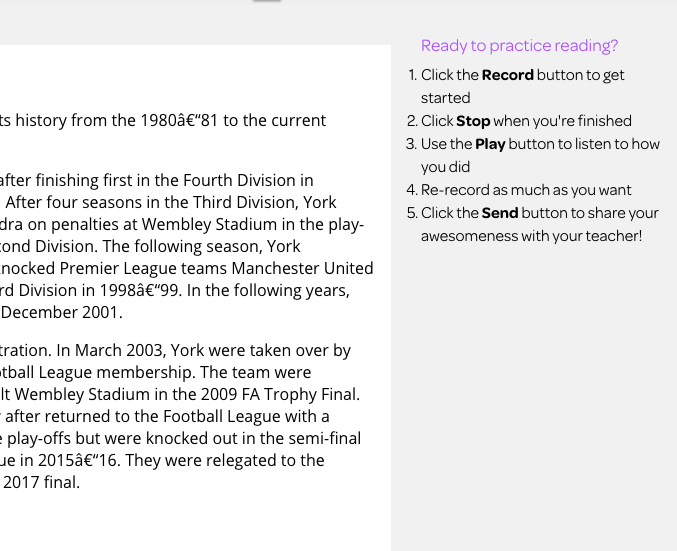CISL - Competitive Analysis
Sources to Investigate
Twitch - mutual experiences
YouTube - “Watch me play…”, and reaction videos
Instagram - stories
- Hypothesis
Storytelling and Story-gathering Resources, Tools, and Examples (SJRK)
Sound Cloud
- Listeners can comment on specific times in the track.
- Others can respond to comments on the track.
- Comments, but not replies to comments, appear visually in the timeline.
- Selecting an annotation on the timeline immediately opens a response text field (see image above).
- Can not link to an individual comment
- From the timeline, there isn't a way to jump down to the conversation thread.
- From the comments, you can reference a location in the timeline so you can play from that location.
Sound Cloud in Education:
- "Teacher's Guide to Sound Cloud in the Classroom"
- "Sometimes telling is more expressive than writing or visualizing and SoundCloud is ideal for that. SoundCloud gives a voice to students and enables them to say their minds. SoundCloud improves students engagement with the learning taking place in class through the interactive features it provides such as commenting and liking."
- Teachers' comments about using Sound Cloud in the Classroom:
- "It is a great teaching tool that allows teachers to incorporate technology into their repertoire by using audio, Podcasting is a powerful tool that encourages listening and speaking skills. " - Gabriela A. on Common Sense Media
- "It's an excellent way to record semester reflections, book opinions, original songs, spoken poems, interviews, and more. Although it's easy to use, it allows students an opportunity to practice technology literacy, and the embedding feature allows for a bit of coding when publishing to an ePortfolio or blog. For students accustomed to more engaging ways of recording and sharing audio (i.e. YouTube videos) or those who are not auditory learners may think the service boring or a hassle. " - Joanna B. on Common Sense Media
YouTube
- Users can comment on videos
- Comments can upvote / downvote comments
- Filtering of comments can be done by popularity or by most recent
- No ability to comment on specific times, but comments can link to times in the video.
- Can not link to individual comments
- Live stream videos can have real-time chats enabled
- Can filter live stream comments by top and most recent
- Chats can scroll quickly
- In the example image above, the instructor was in the real time chat with partcipants while live streaming
Hypothesis
Above: Hypothesis with an annotation
Above: Hypothesis with a Note.
- Users can create:
- annotations by highlighting content on a page
- notes which are not tied to specific content on the page
- Individuals can reply to individual annotations and notes
- Notes can include links and images.
- Uses Markdown.
- Can share just an annotation or the whole annotated page itself
- Some tagging
- Can create groups for participants to collaborate in
- Code is open source and available on Github: https://github.com/hypothesis
- Privacy: unclear if annotations done within a group are group private, or globally public.
- When posting publicly, Annotations are CC0 1.0
- User must have an account and login to create notes or annotations
- Annotations attached to content that gets removed become Orphans
Ant - Video Annotation Tool
Website: https://ant.umn.edu/
Description:
- provide an URL to a YouTube video, you can add text annotations to the timeline similar to Sound Cloud
The image above:
- Shows two annotations marked on the timeline
- One annotation is empty, and the other has some content.
- Hovering over the mark on the timeline shows an excerpt for the annotation
Other notes:
- People can reply to annotations
- Unclear what the visibility / privacy is on annotations
- You can embed Ant annotated videos
- There are share settings as well
W3C Web Annotation
W3C had a Web Annotation Working Group until early 2017. The goal of the group was "to develop a set of specifications for an interoperable, sharable, distributed Web Annotation architecture."
https://www.w3.org/annotation/
"Traditional annotations are marginalia, errata, and highlights in printed books, maps, picture, and other physical media. Web annotations are an attempt to recreate and extend that functionality as a new layer of interactivity and linking on top of the Web. It will allow anyone to annotate anything anywhere, be it a web page, an ebook, a video, an image, an audio stream, or data in raw or visualized form. Web annotations can be linked, shared between services, tracked back to their origins, searched and discovered, and stored wherever the author wishes; the vision is for a decentralized and open annotation infrastructure."
This article "Three recommendations to enable annotations on the web", by Coralie Mercier (Feb 23, 2017) summarizes 3 key components to the architecture:
- Data model
- Vocabulary
- Protocol
Diagrams:
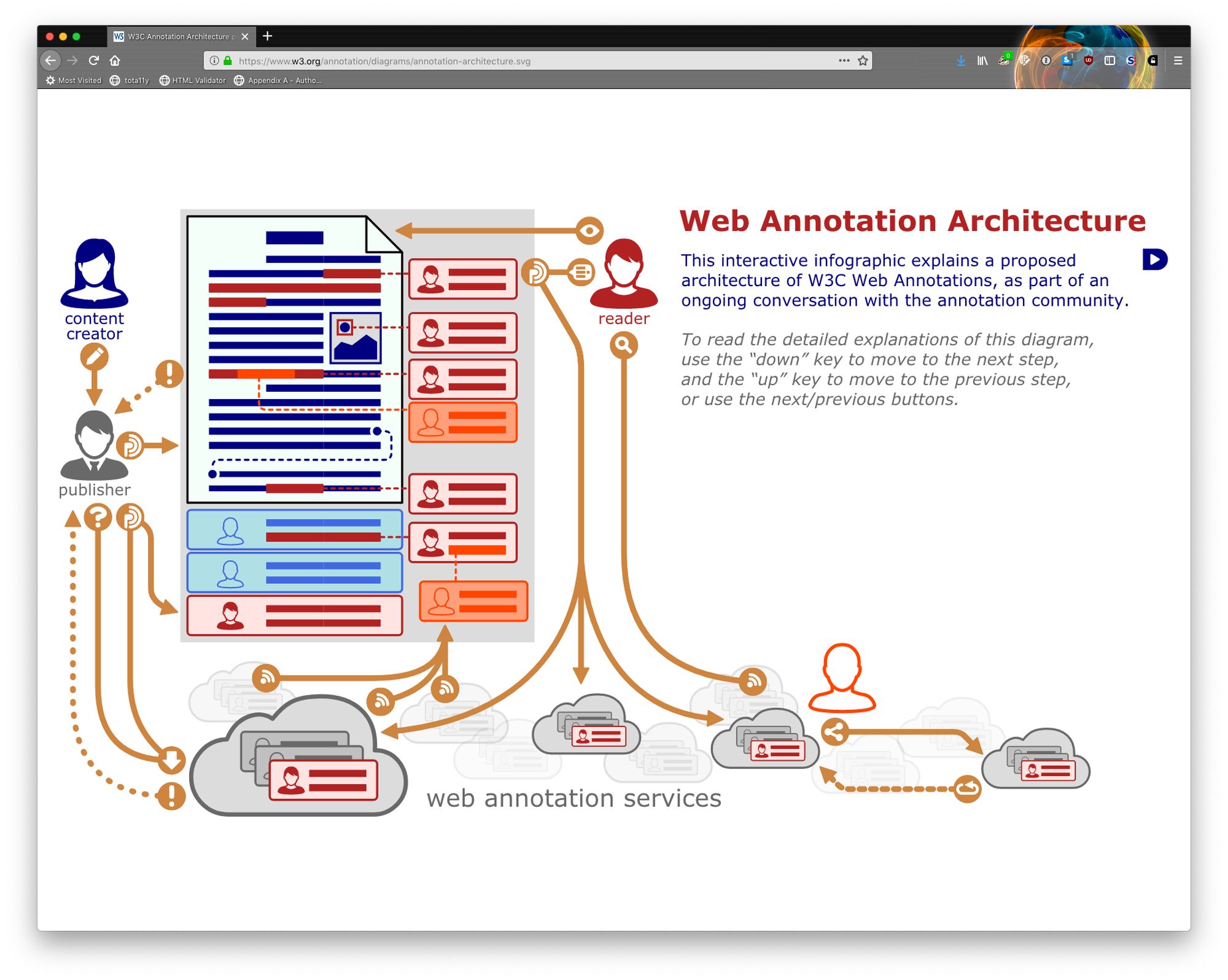
|
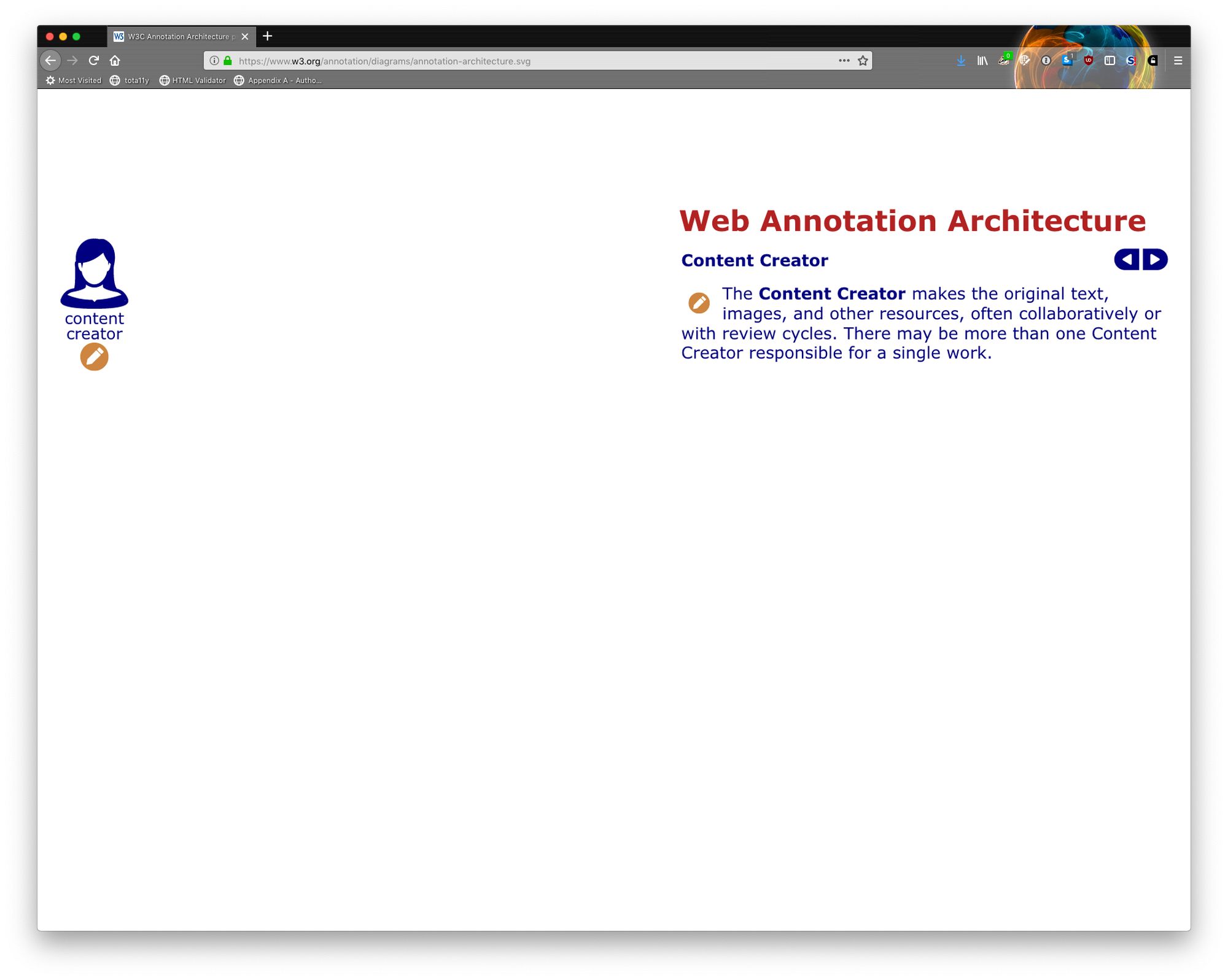
|
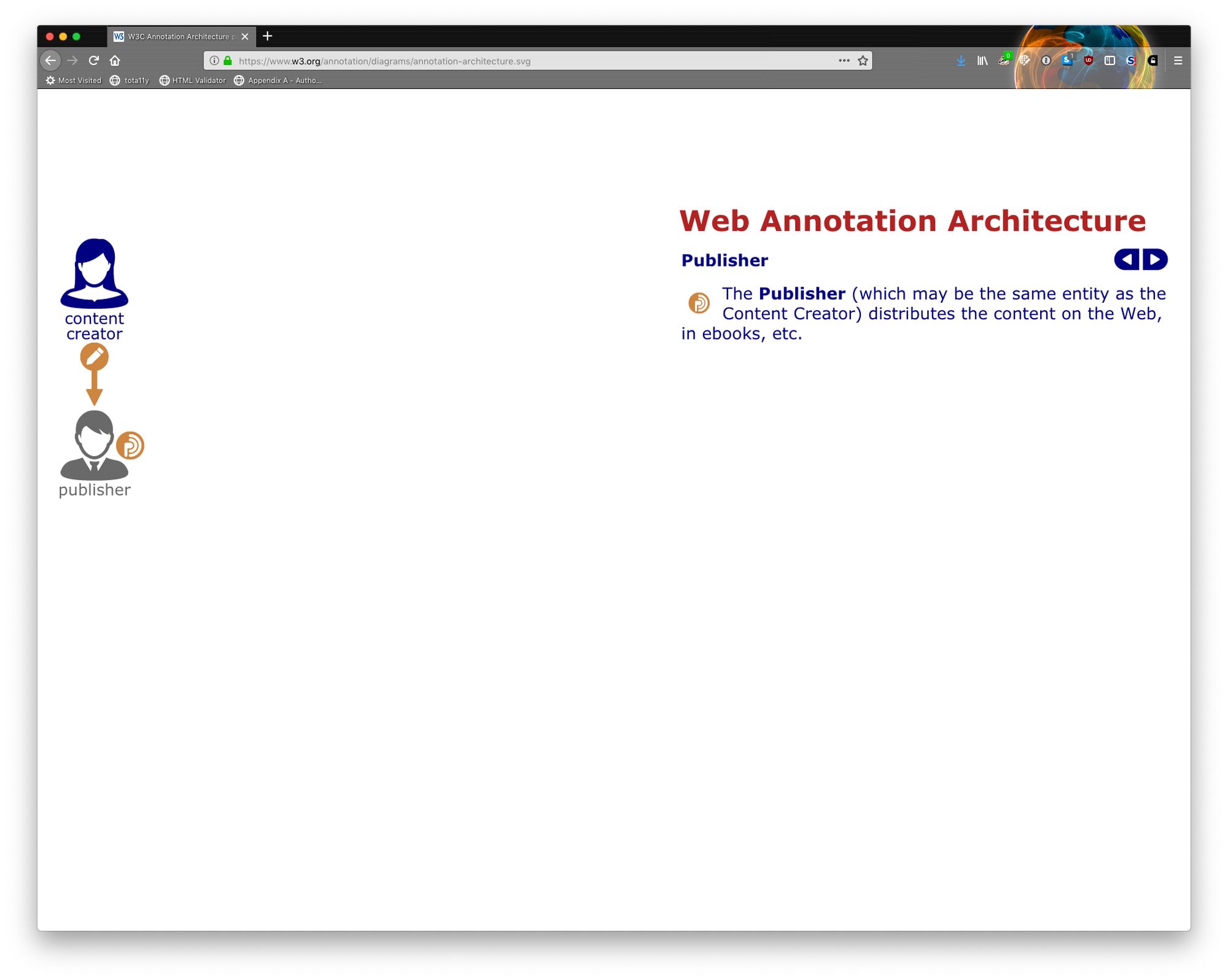
|
|
|
|
|
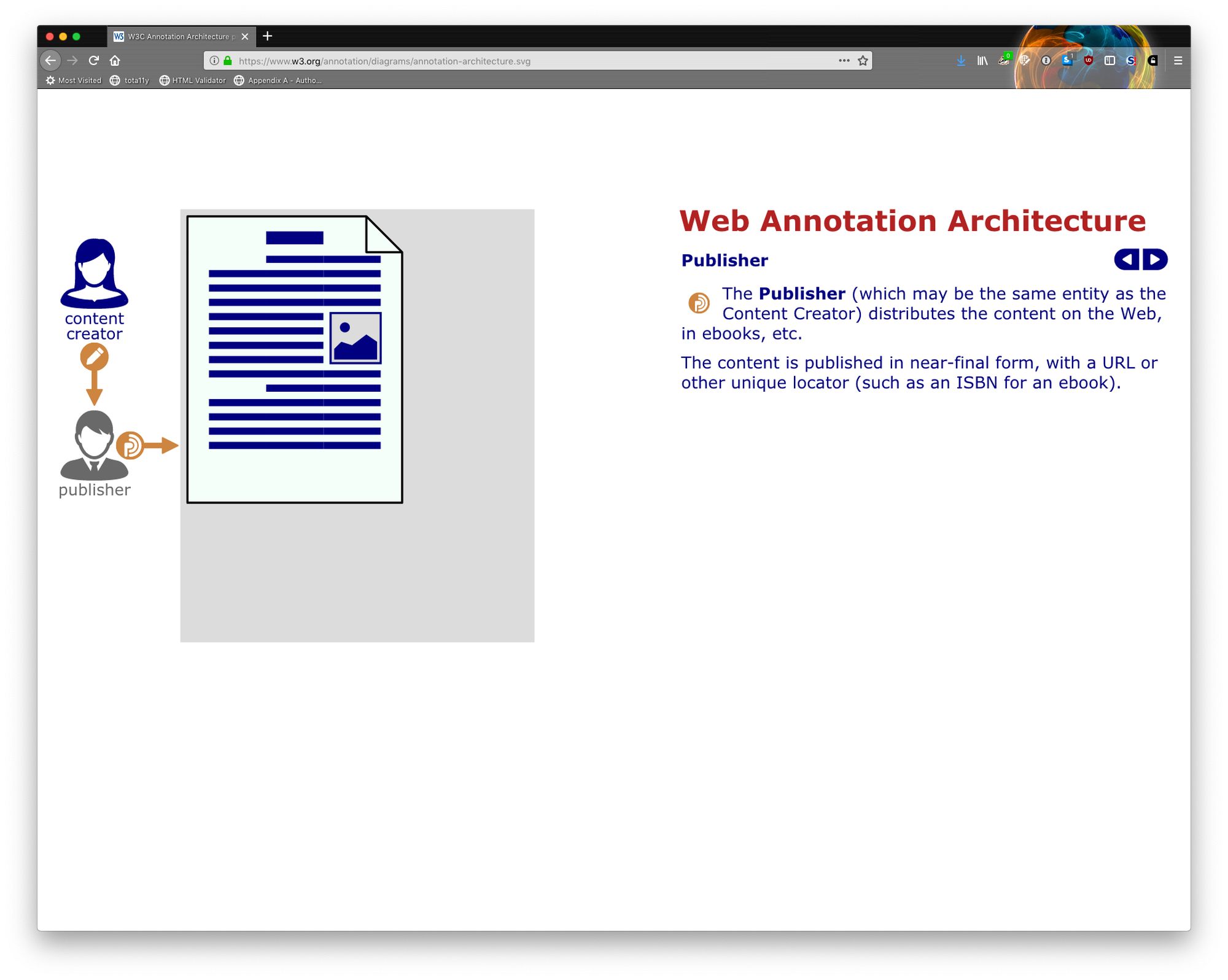
|
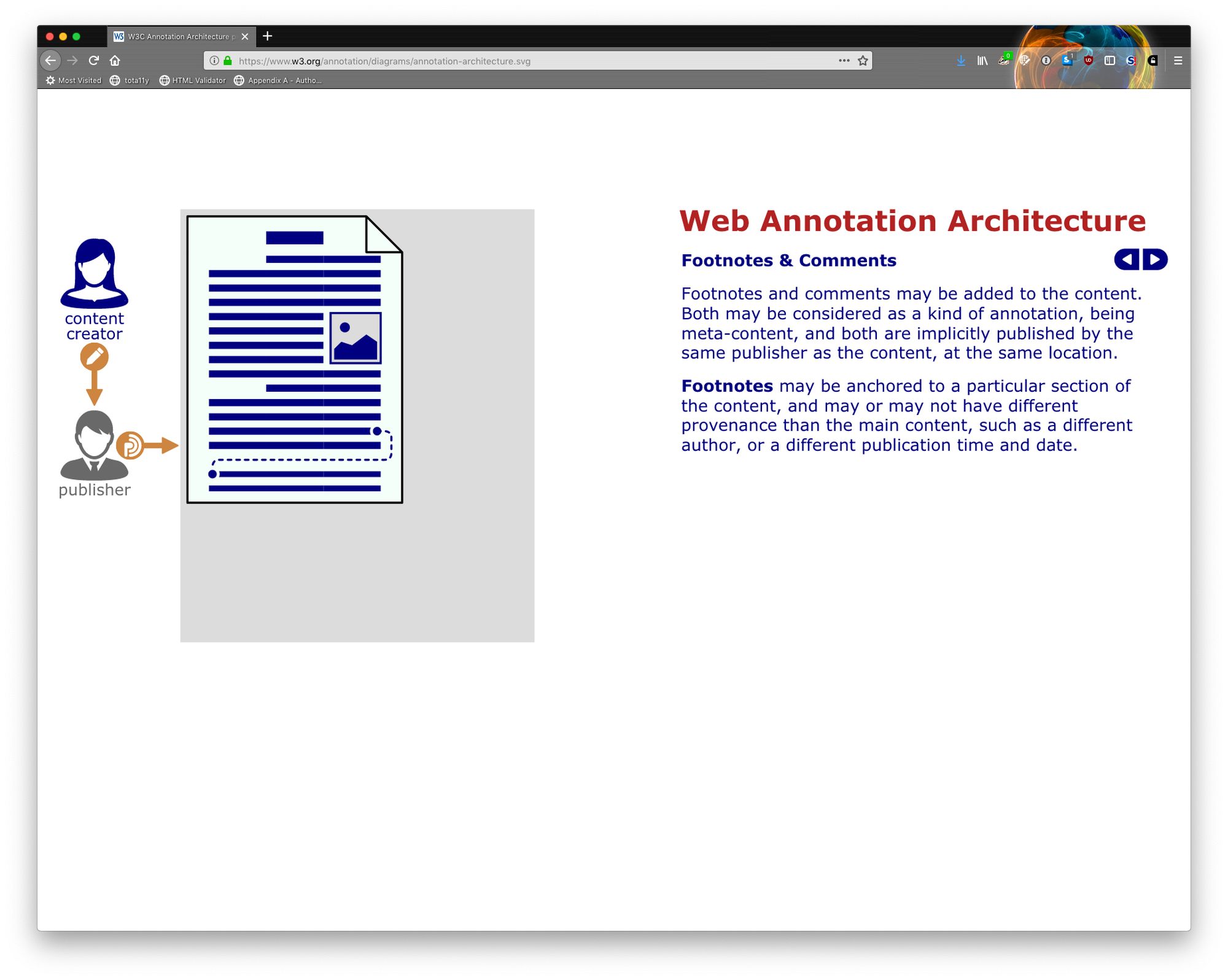
|
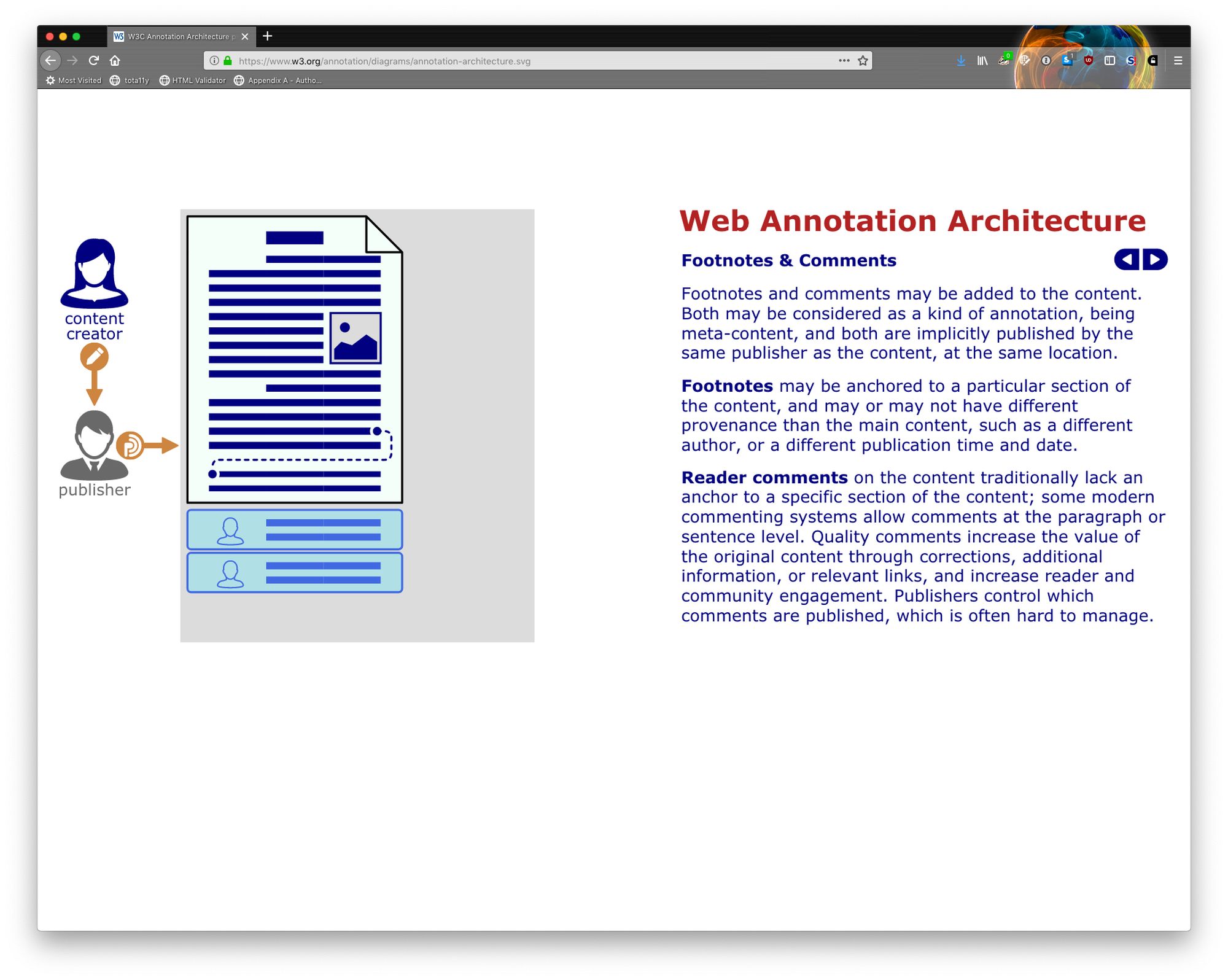
|
|
|
|
|
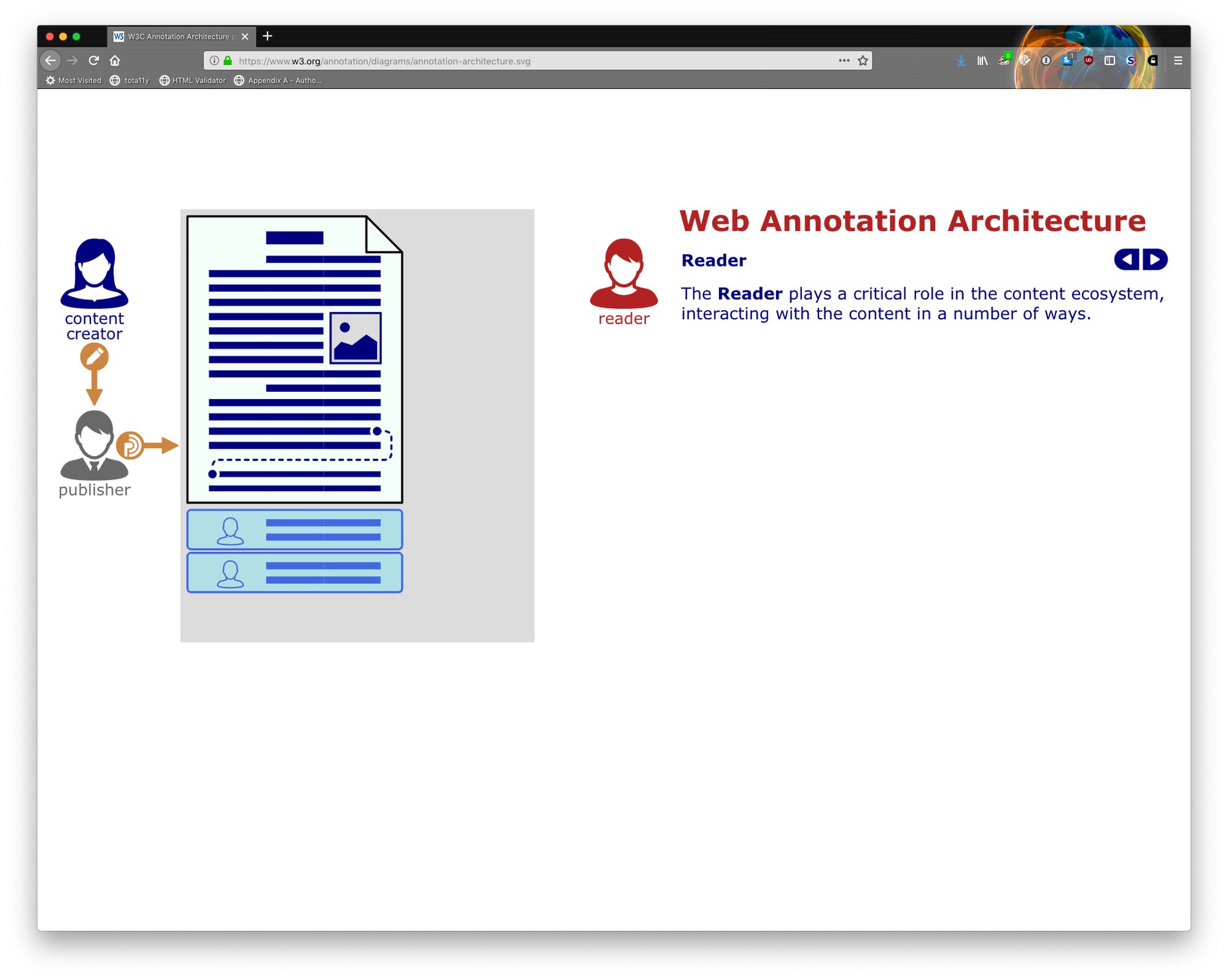
|
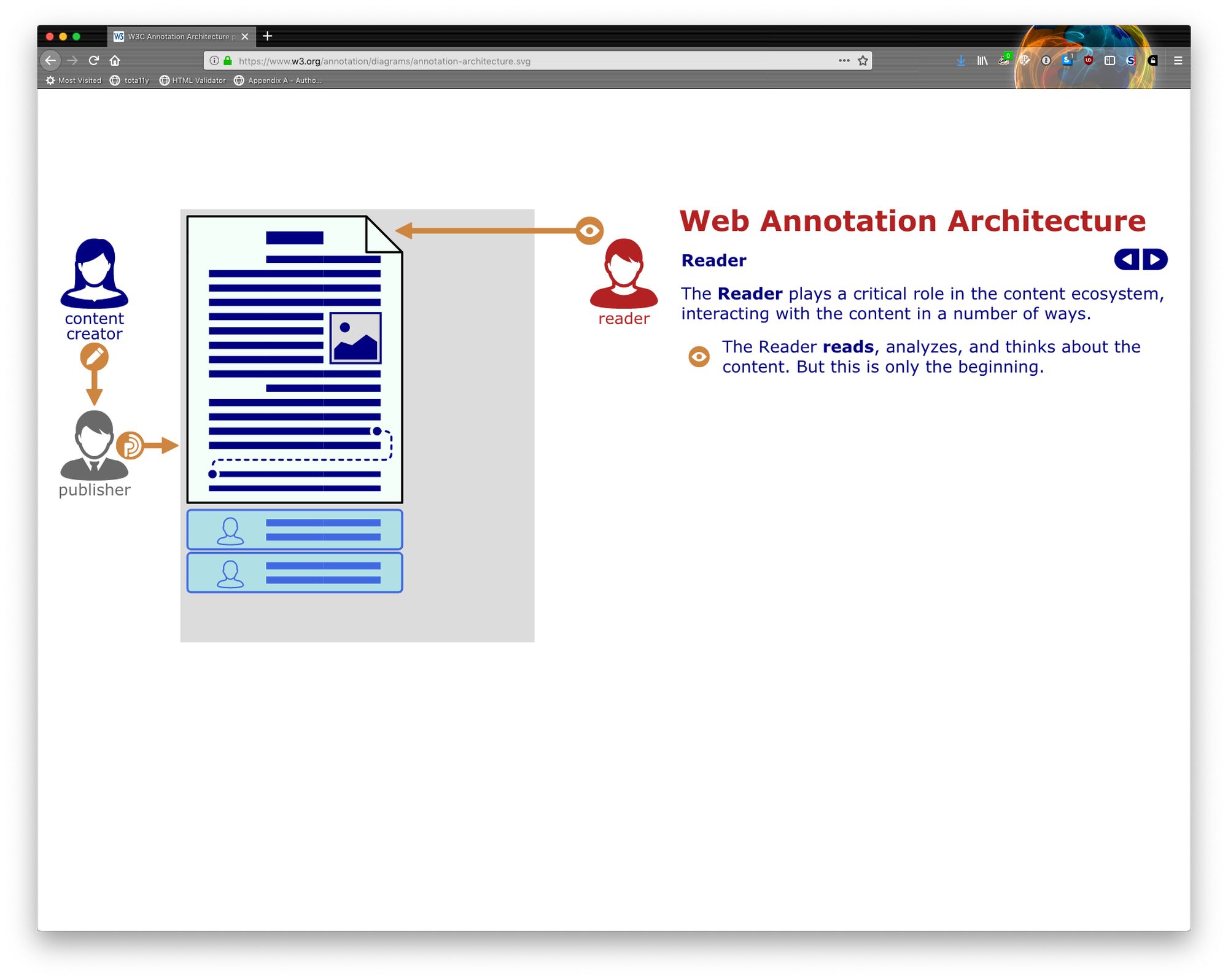
|
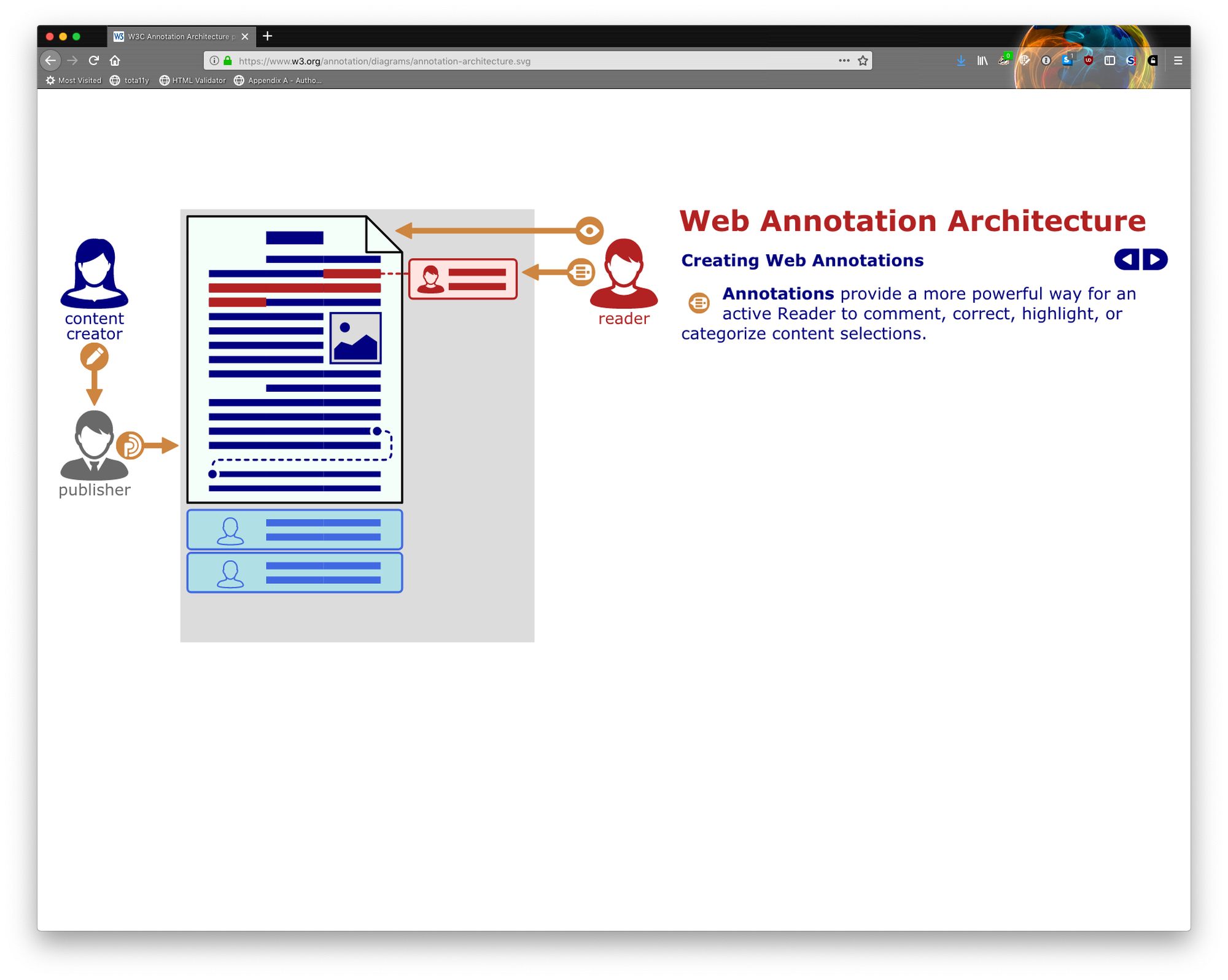
|
|
|
|
|
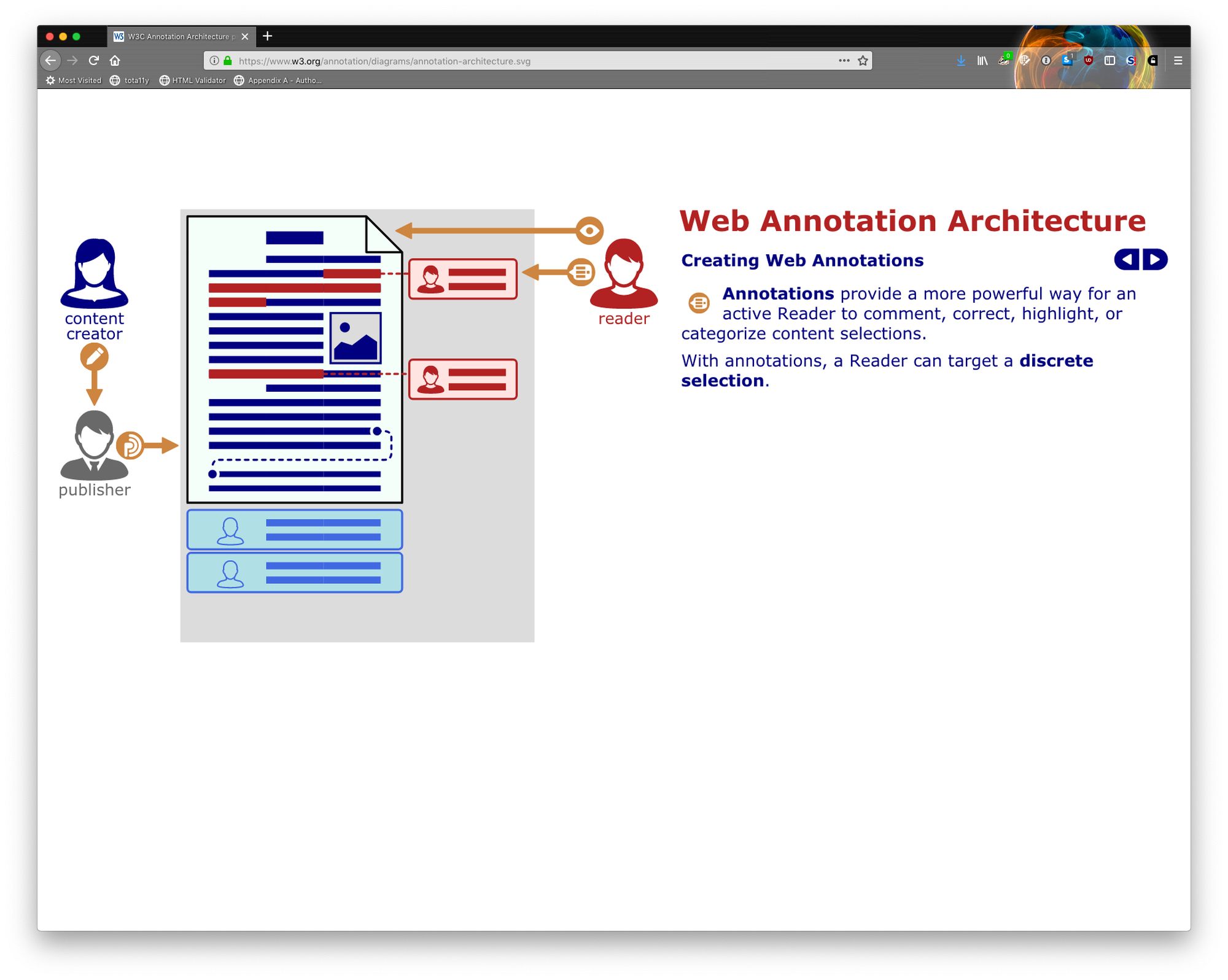
|
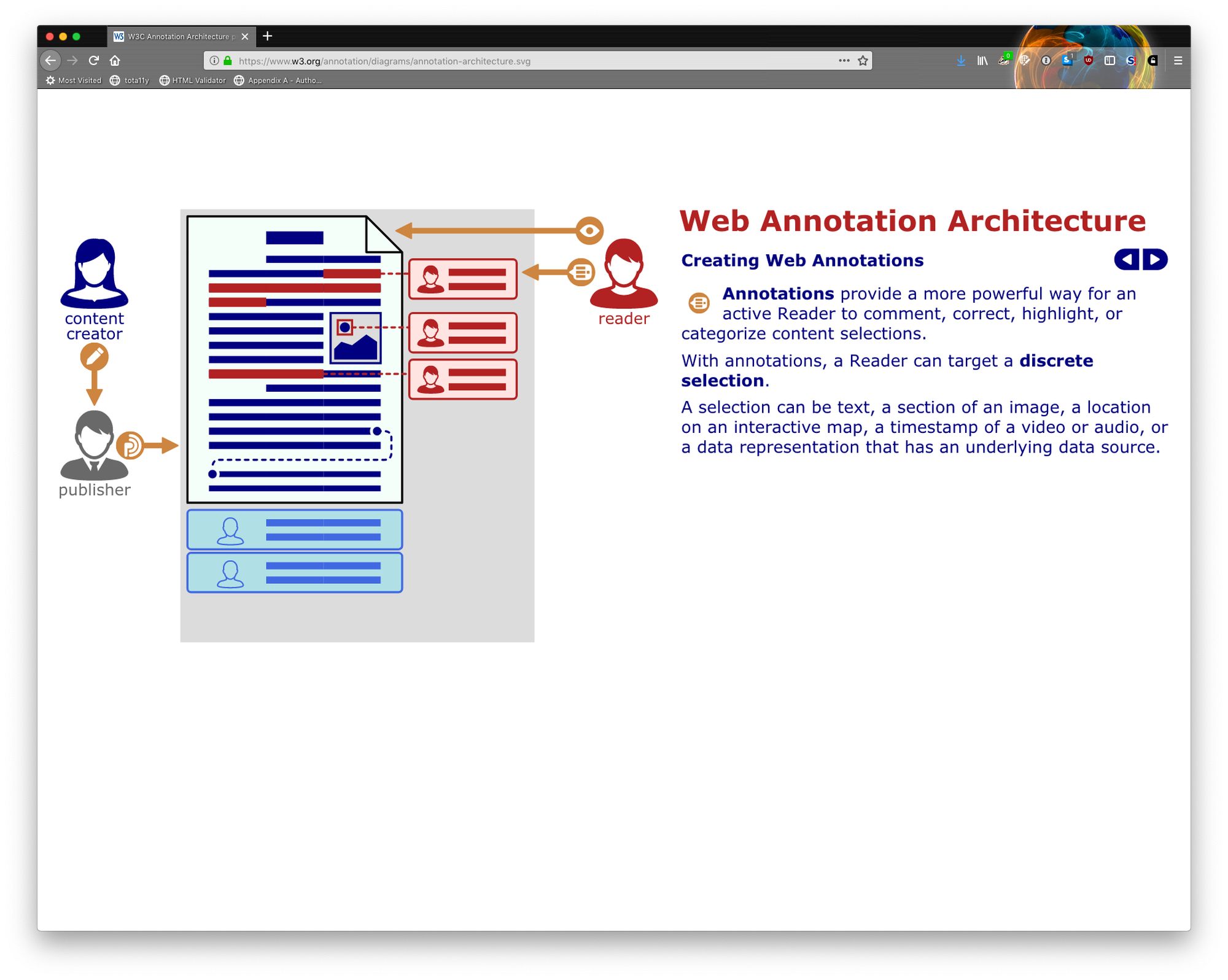
|
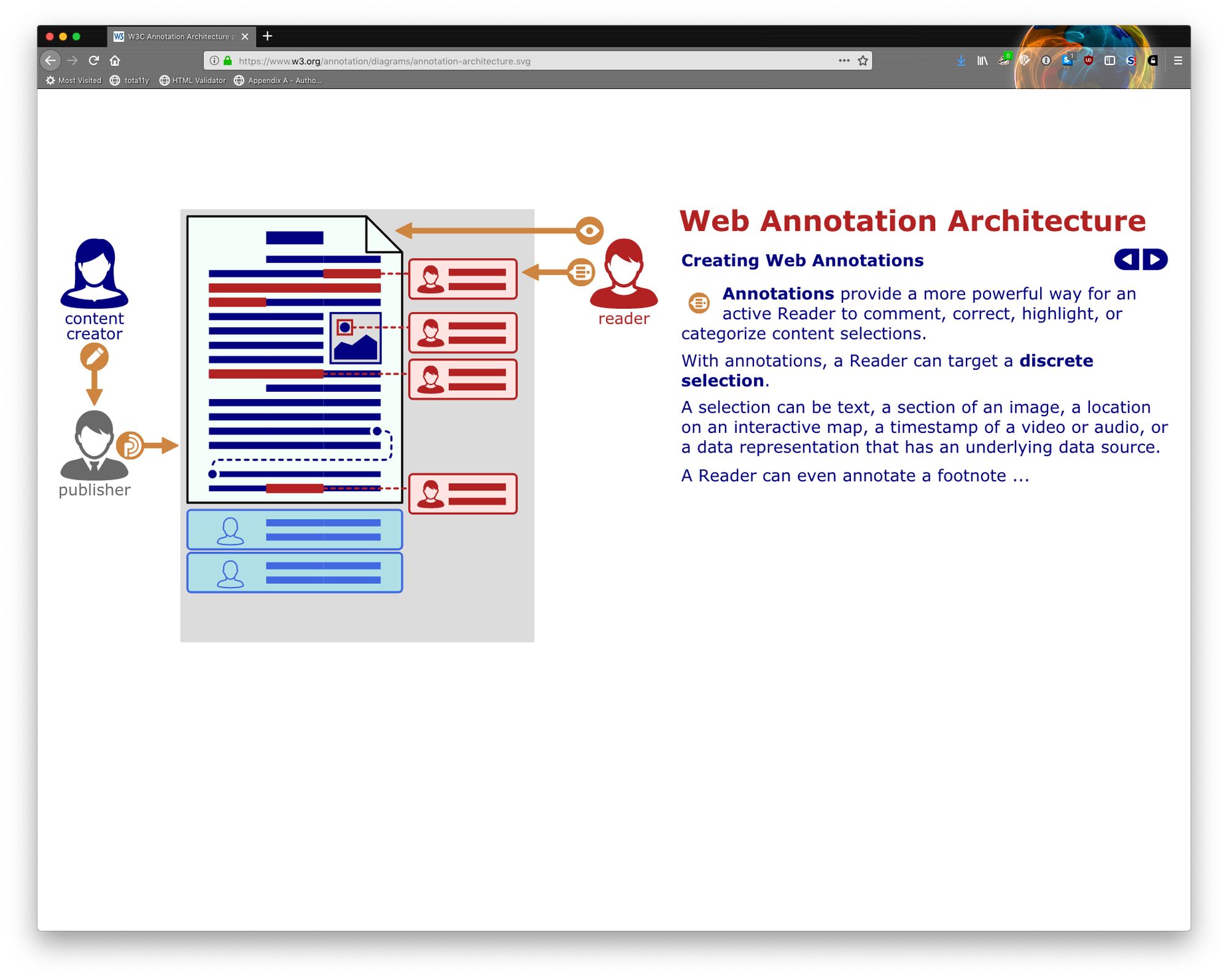
|
|
|
|
|
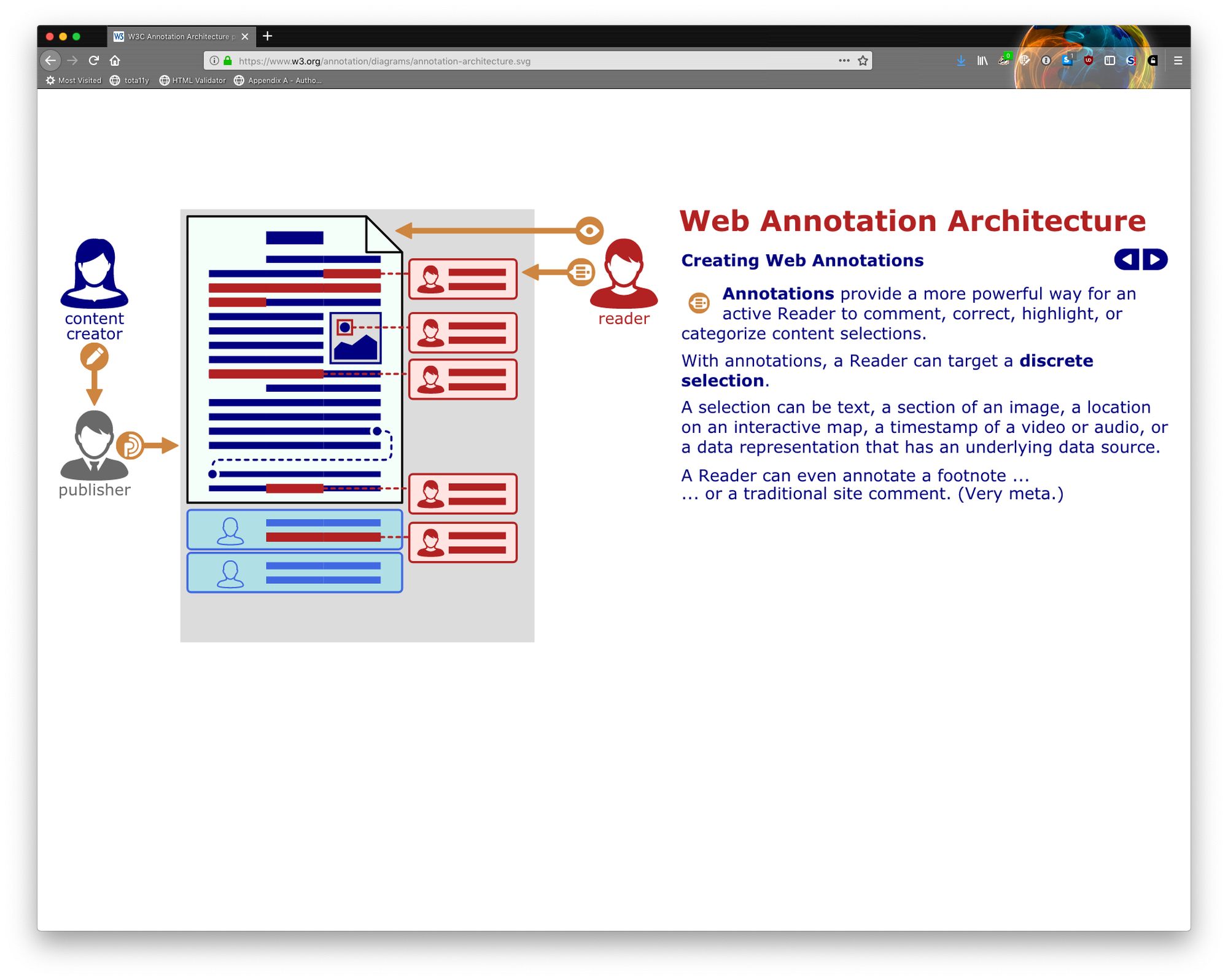
|
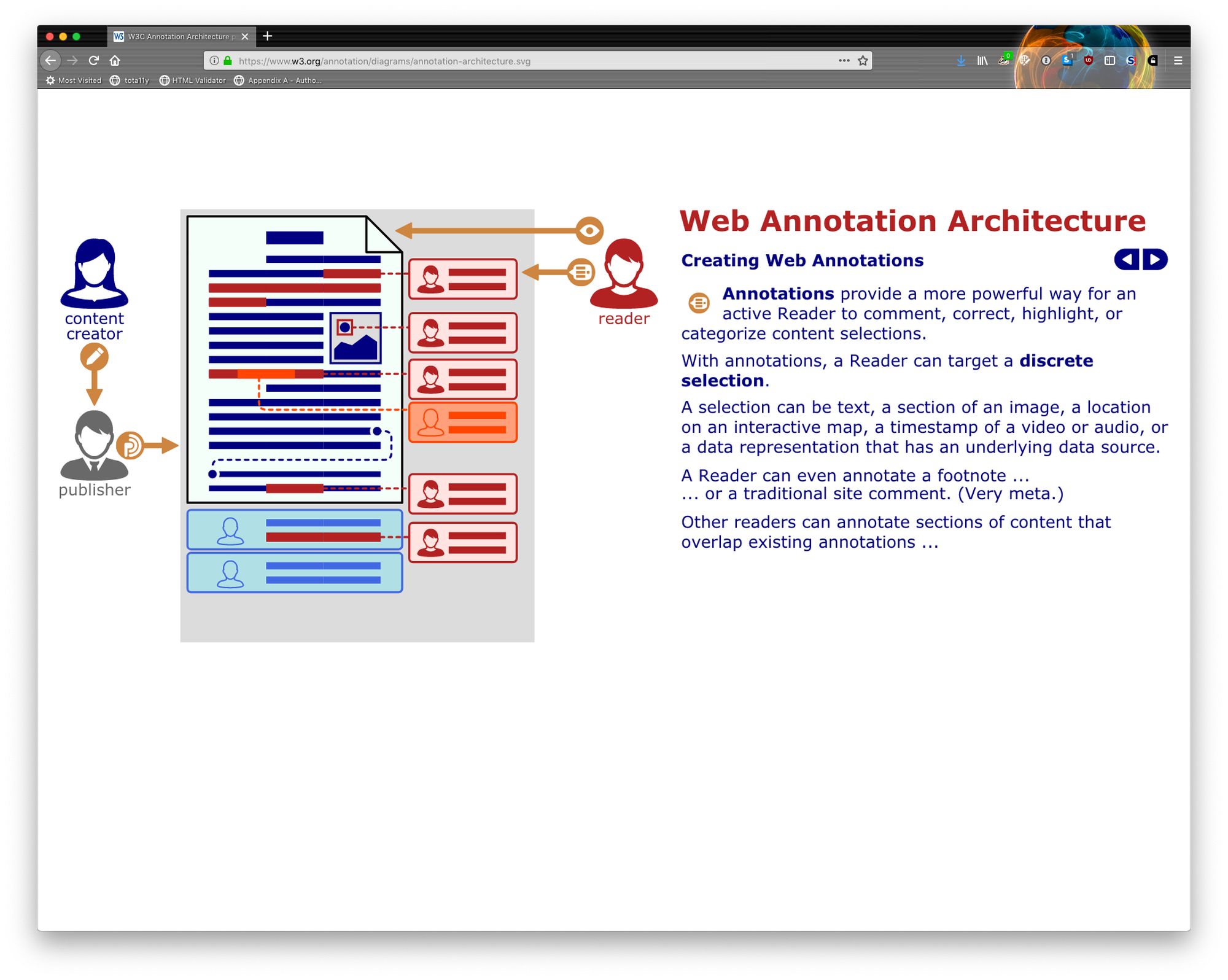
|
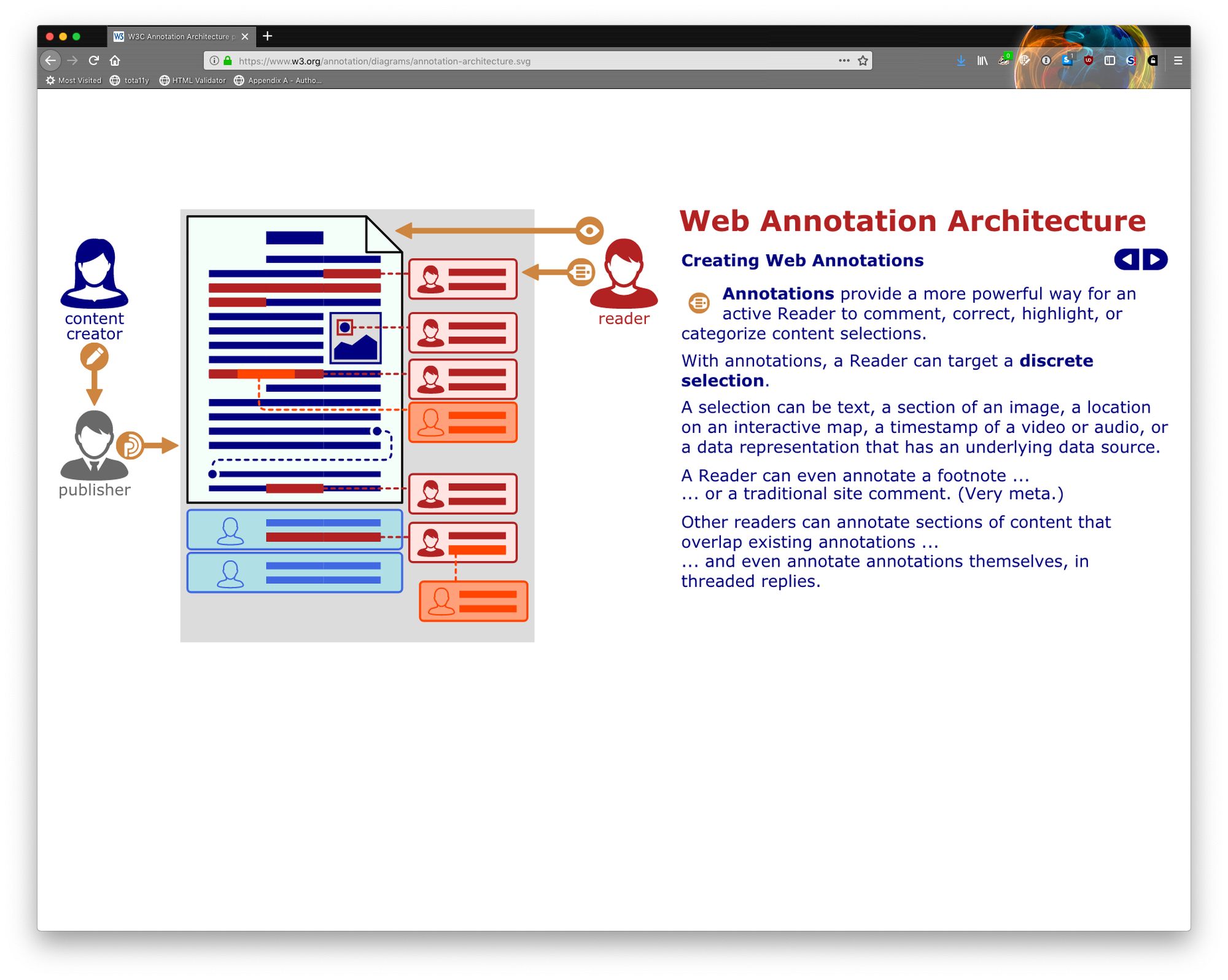
|
|
|
|
|
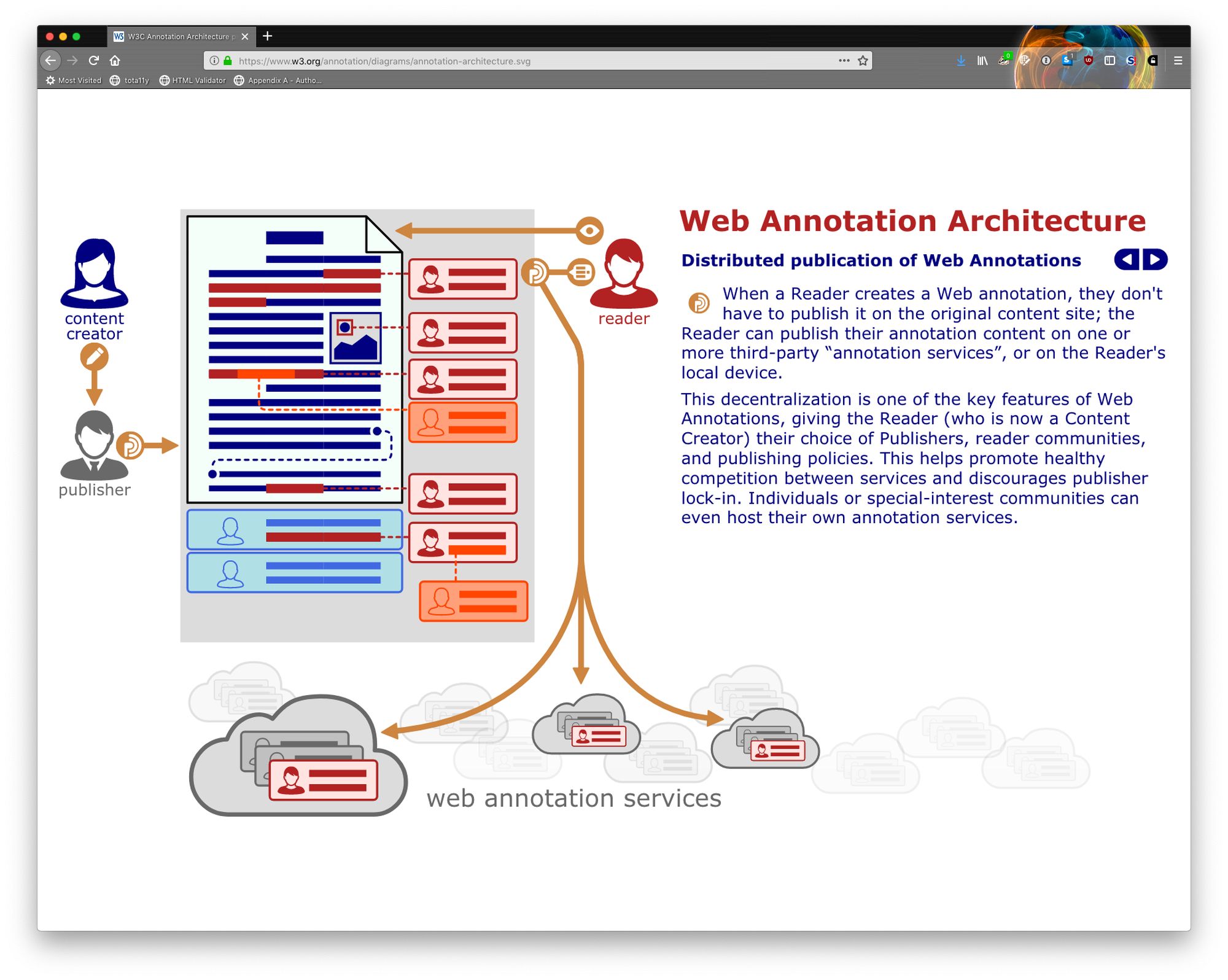
|
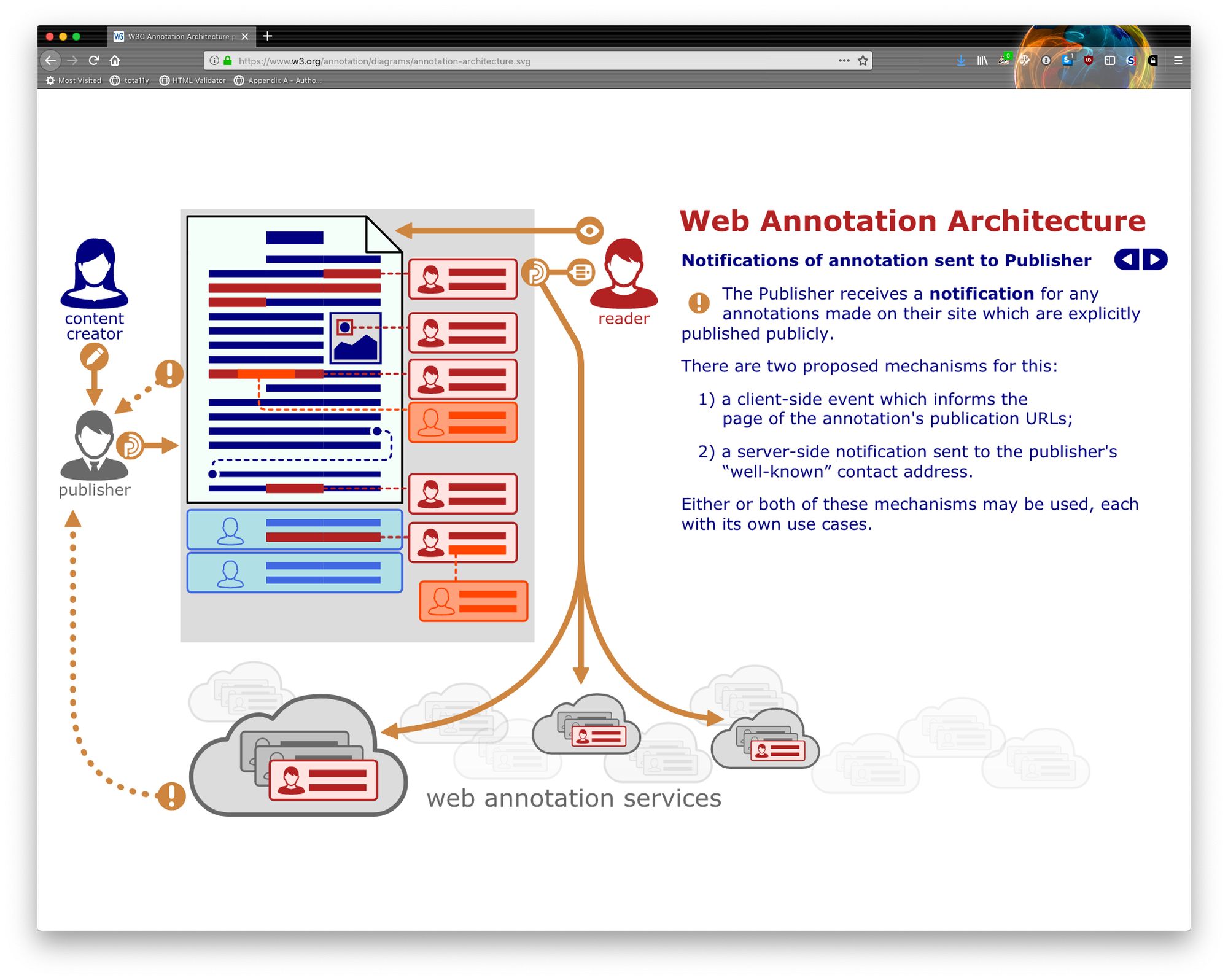
|
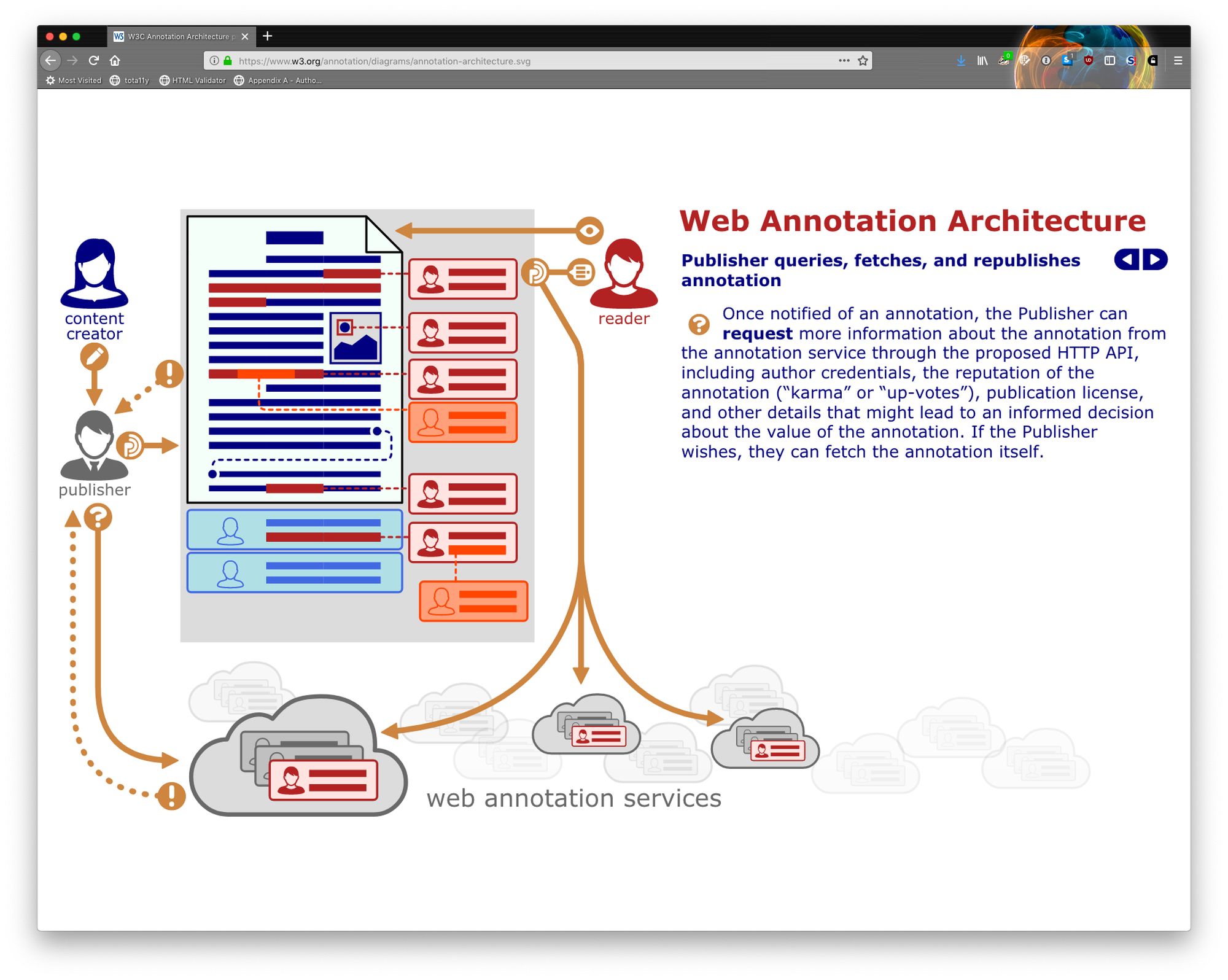
|
|
|
|
|
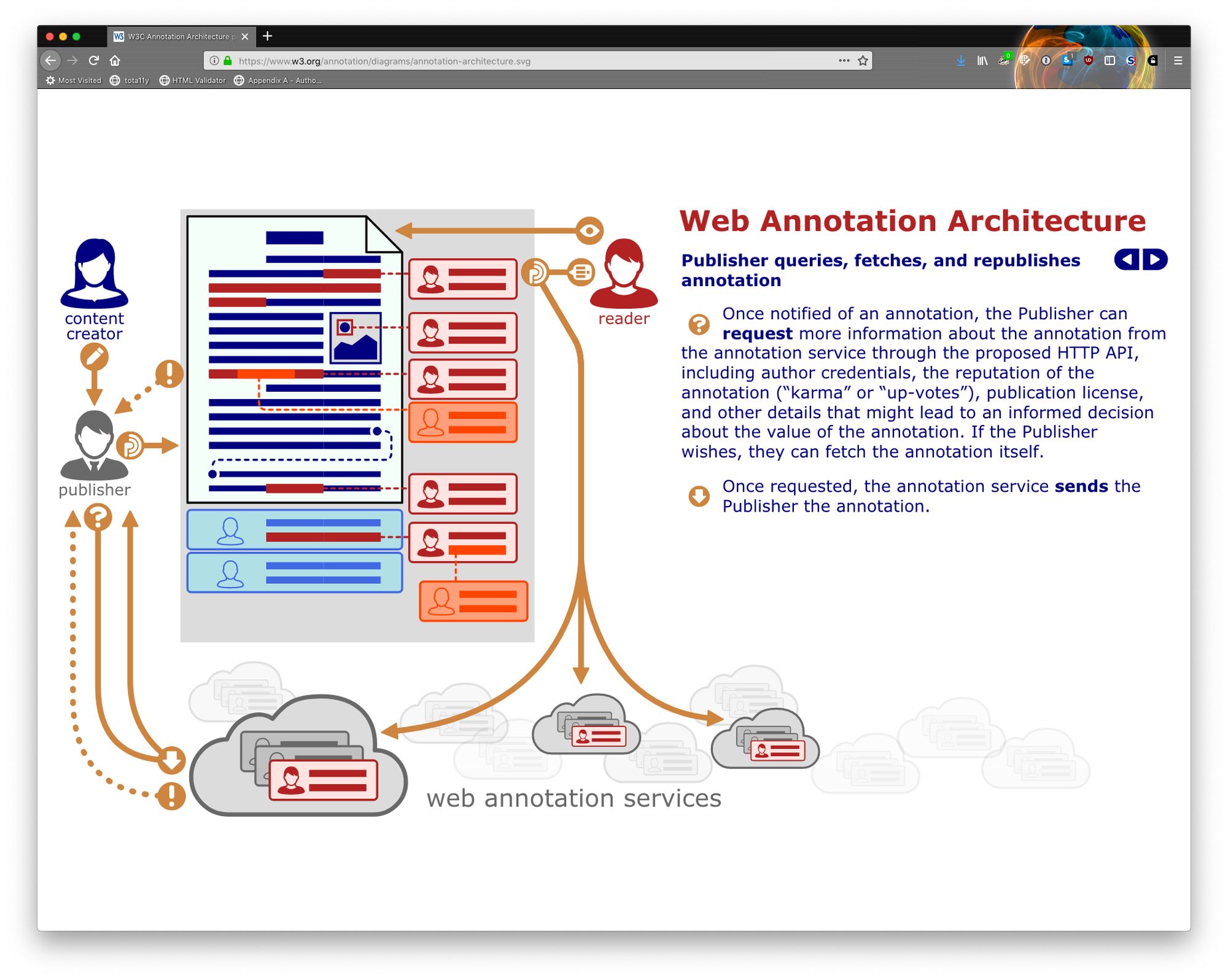
|
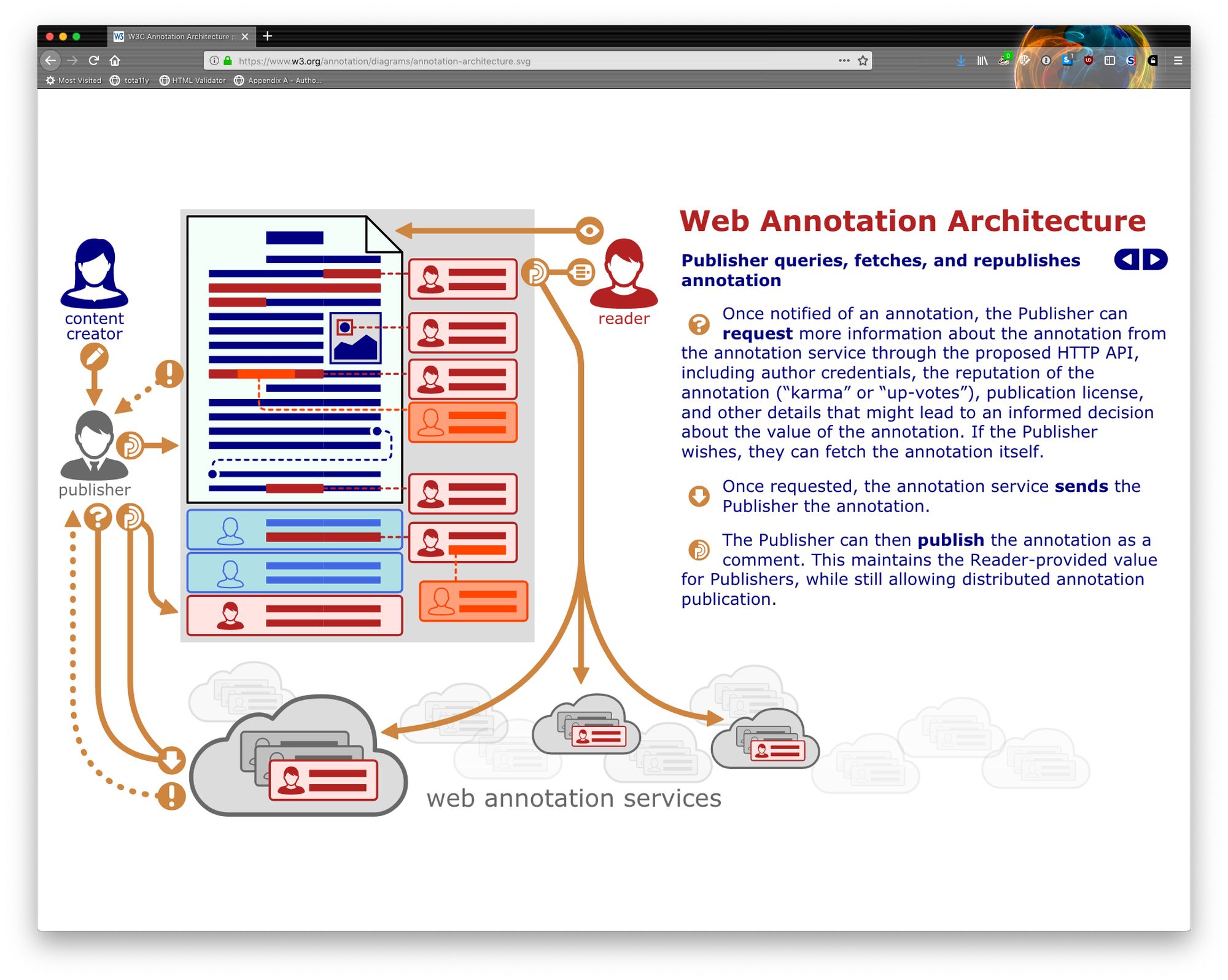
|
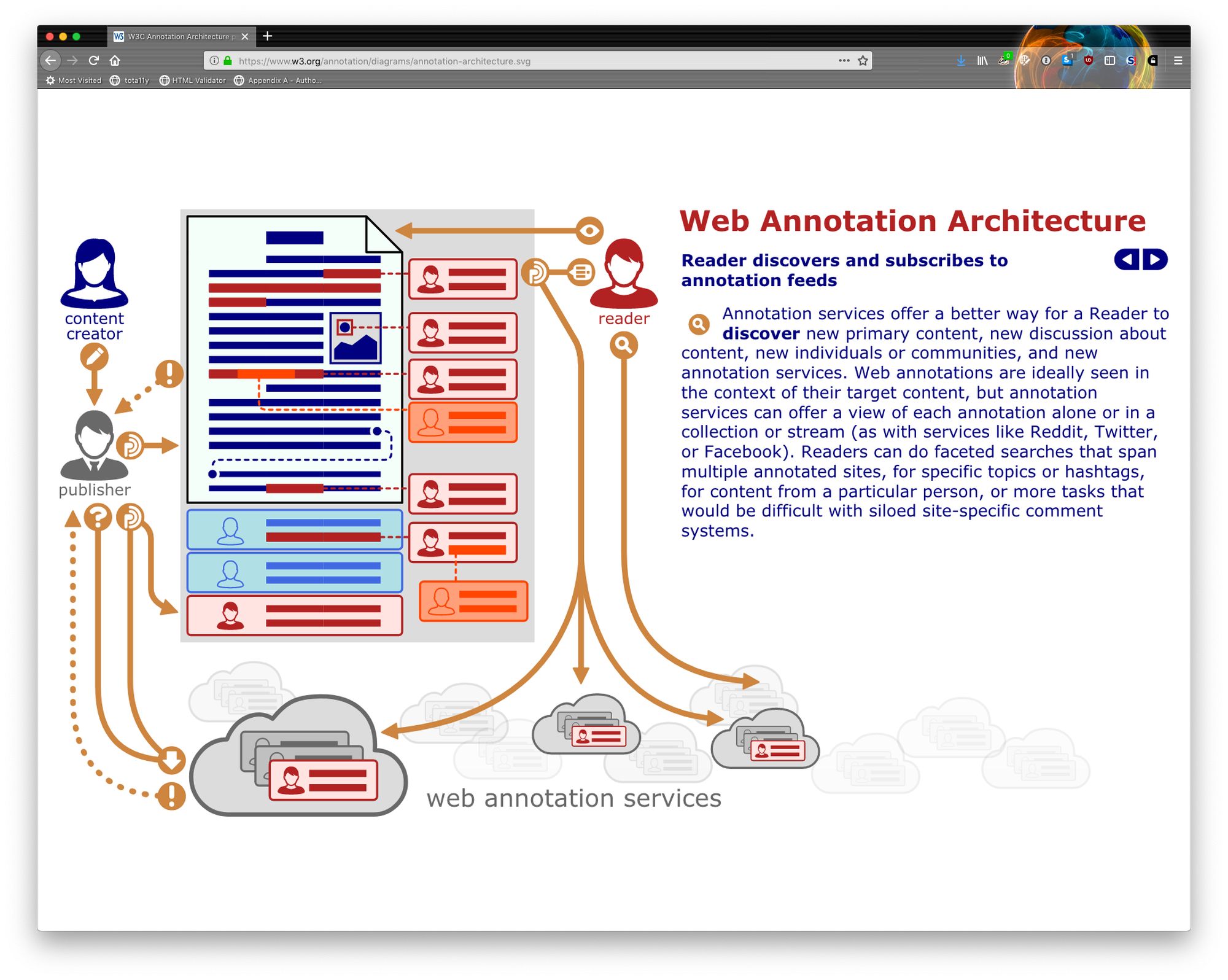
|
|
|
|
|
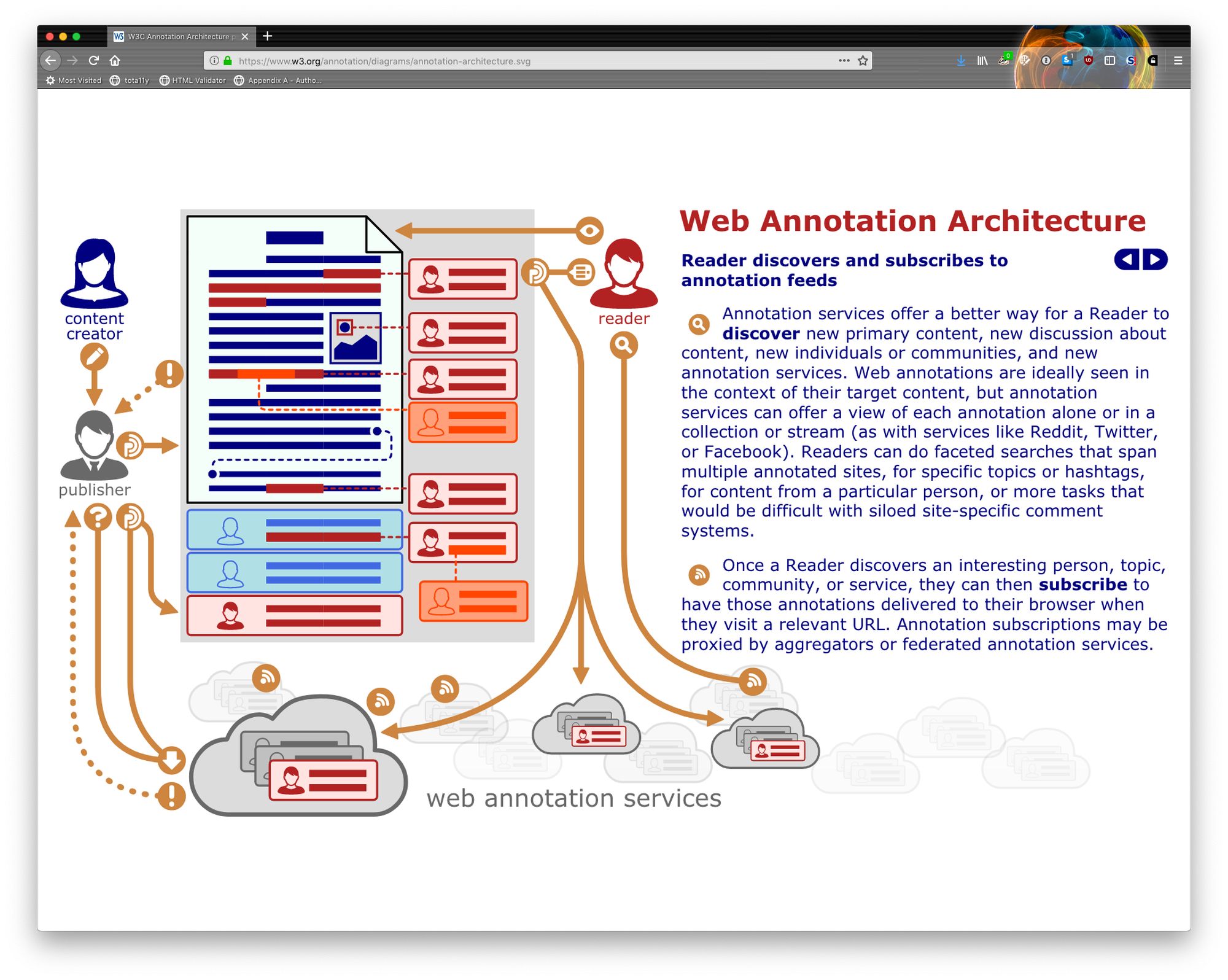
|
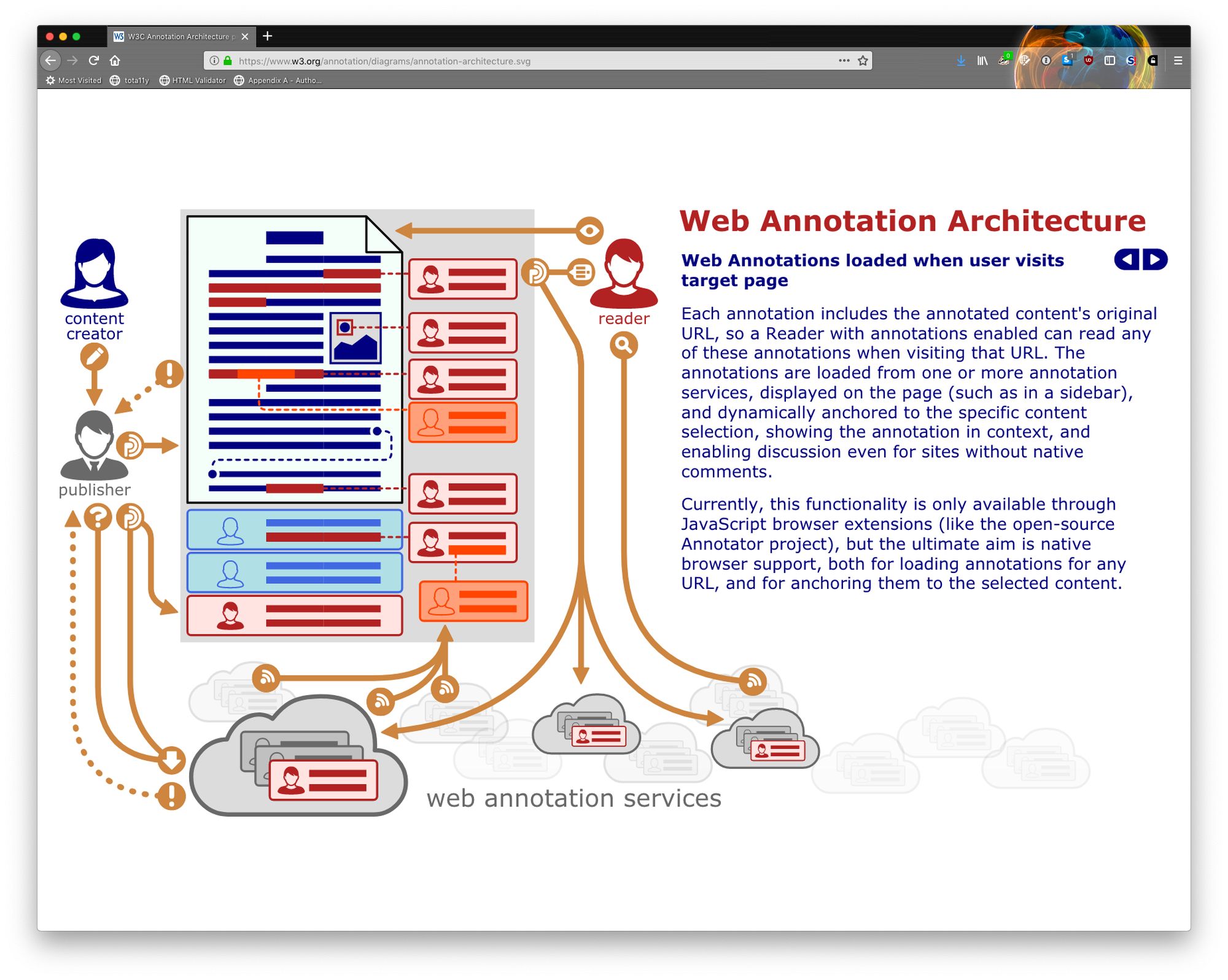
|
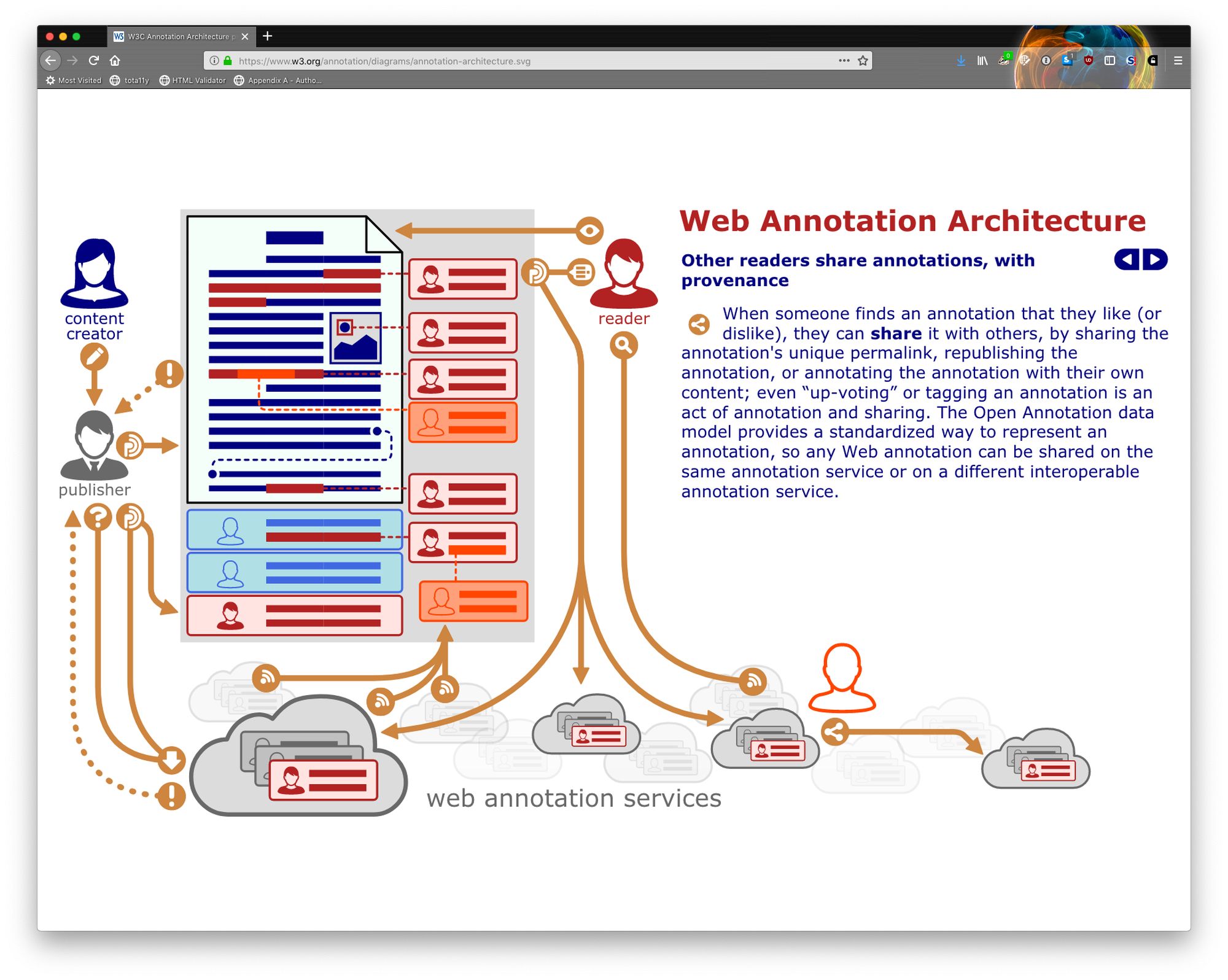
|
|
|
|
|
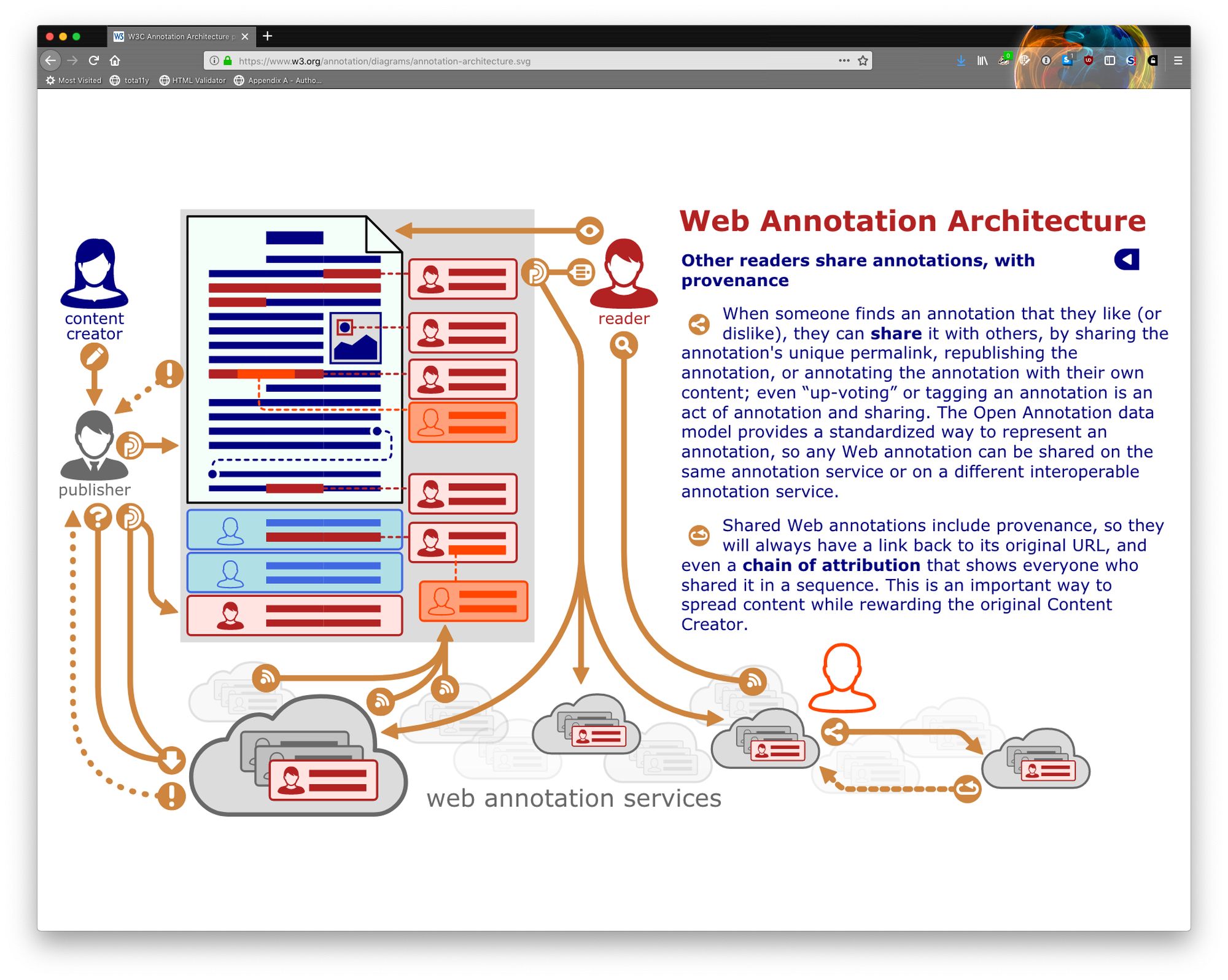
|
||
|
|
Read&Write for Google Chrome
Browser plugin that offers several accessibility features:
- Hover speech
- hover over text to begin text-to-speech of sentence below cursor
- speech continues to next sentence automatically
- moving mouse to another spot (i.e. to change windows) can also cause the text-to-speech to trigger
- speech continue until you hit stop and switch off Hover speech
- Dictionary, picture dictionary
- Audio maker
- Highlight some text and download the text-to-speech MP3
- Screen mask - uses an overlay to help isolate lines of text.
- Dictation, translator, highlight tools
- Simplify tool converts content from an URL
- https://rw.texthelp.com/simplify/home/simplify?locale=en_US&simplify=https://en.wikipedia.org/wiki/History_of_York_City_F.C._(1980%E2%80%93present)
- There's a + / - for simplify but it's no clear what it does
- has contrast modes
- https://rw.texthelp.com/simplify/home/simplify?locale=en_US&simplify=https://en.wikipedia.org/wiki/History_of_York_City_F.C._(1980%E2%80%93present)
- Fluency feature which allows you to record dictations and send to a teacher
Drop in and out collaborative creations
Collaborative creation examples: Google drawings, Minecraft, Scratch
Features:
- Ability to browse creations
- Ad-hoc co-creation
- Permissions control
Other commercial online collaboration tools
Flickr
Flickr used to have a photo annotation tool called "notes", but this may not be a feature anymore.
For example, see this image with the notes feature.
